Energizing@MIT: MITEI’s Annual Research Conference frames the key technology, policy, and economic drivers that are shaping today’s energy system and its future. This year’s theme is Tackling emerging energy challenges. We will explore grid resiliency, energy storage, vehicle electrification, carbon capture, sustainable fuels, and geopolitics, and we will hear from MITEI-funded startups on their path from lab to market. We will also review promising discoveries from MITEI’s Seed Fund program, which supports innovative early-stage research, as well as hear from MIT UROP students, Energy Scholars, and Future Energy Systems Center project teams.
AGENDA
| Tuesday, September 9 | |
| 8:00-9:00 am | Breakfast and registration |
| 9:00-9:15 am |
Welcome and opening remarks
Duane S. Boning, Vice Provost for International Activities, MIT; Clarence J. LeBel Professor, MIT Department of Electrical Engineering and Computer Science |
| 9:15-10:00 am |
Keynote address Annalisa Muccioli, Head of Research & Technological Innovation, Eni SpA Moderated by William H. Green, Director, MIT Energy Initiative; Hoyt C. Hottel Professor, MIT Department of Chemical Engineering |
| 10:00-11:15 am |
Grid resiliency Pablo Duenas-Martinez, Research Scientist, MIT Energy Initiative Moderated by Deepjyoti Deka, Research Scientist, MIT Energy Initiative |
| 11:15-11:30 am | Break |
| 11:30 am-12:45 pm |
Carbon capture in power generation Exploring how carbon capture technology is being applied in power generation to provide firm, low-carbon electricity. Jeffrey Goldmeer, Senior Director of Technology Strategy, Technology Strategy & Ventures, GE Vernova Moderated by: Randall Field, Director of Research, MIT Energy Initiative |
| 12:45-2:00 pm | Lunch |
| 2:00-3:15 pm | MITEI General Seed Fund Project annual check-up Reporting the progress on early-stage research and innovation projects funded by the MITEI Seed Fund, which is sponsored by MITEI’s Founding and Sustaining members.
Moderated by: Martha Broad, Executive Director, MIT Energy Initiative |
| 3:15-3:30 pm | Break |
| 3:30-4:45 pm |
Long duration energy storage Examining the use cases for long duration energy storage and the key technologies gaining traction in addressing this need. Manlio Coviello, President, Energy Dome Latam Moderated by: Ruaridh Macdonald, Research Scientist, MIT Energy Initiative |
| 4:45-5:00 pm |
The MITEI Data Center Power Forum Announcing the formation of the MITEI Data Center Power Forum to build on MIT’s strengths in the engineering, policy, and economics related to energy supply and storage, grid design and management, and infrastructure for data centers. Introduction by Carolyn Ruppel, Deputy Director for Science and Technology, MIT Energy Initiative J.J. Laukaitis, Director of Member Services, MIT Energy Initiative |
| 5:00-7:00 pm | Reception with MIT Undergraduate Research Opportunity Program (UROP) poster presentations
|
| Wednesday, September 10 | |
| 8:00-9:00 am | Breakfast and registration |
| 9:00-10:15 am |
Vehicle electrification Investigating challenges for vehicle electrification related to battery technology, power electronics, powertrains, and recharging infrastructure. Samantha Coday, Assistant Professor, MIT Department of Electrical Engineering and Computer Science Moderated by: Morgan Andreae, Executive Director, Future Energy Systems Center, |
| 10:15-10:30 am | Break |
| 10:30-11:45 am |
Propelling the future: Sustainable fuels Discussing alternative drop-in fuels to power long distance, energy-intensive transportation sectors as MITEI prepares to launch a two-year study on Sustainable Fuels of the Future. Introduction by: Randall Field, Director of Research, MIT Energy Initiative Erik G. Birkerts, Chief Growth Officer, LanzaJet Moderated by: Desirée Plata, School of Engineering Distinguished Professor of Climate and Energy, Civil and Environmental Engineering, MIT |
| 11:45 am-1:00 pm | Lunch with Energy Scholars poster presentations
|
| 1:00-1:45 pm |
Keynote address China and the United States: The global clean tech race Kelly Sims Gallagher, Dean and Professor of Energy and Environmental Policy, The Fletcher School, Tufts University Moderated by: Michael A. Mehling, Deputy Director, MIT Center for Energy and Environmental Policy Research |
| 1:45-3:00 pm |
China and the energy transition Mike Gerty, Director of Powertrain Planning and Integration, PACCAR Inc. Moderated by: Michael A. Mehling, Deputy Director, MIT Center for Energy and Environmental Policy Research |
| 3:00-3:15 pm | Break |
| 3:15-4:30 pm |
From lab to market: Paths to commercialization Iwnetim Abate, Chipman Career Development Professor and Assistant Professor, MIT Department of Materials Science & Engineering Moderated by: Brent Ridley, Senior Advisor, Impact and Translation, MIT Climate Project |
| 4:30-4:45 pm | Summary Carolyn Ruppel, Deputy Director for Science and Technology, MIT Energy Initiative |
| 4:45-6:30 pm | Reception with Future Energy Systems Center project highlights
|
About the speakers
Iwnetim Abate
Chipman Career Development Professor and Assistant Professor, MIT Department of Materials Science & Engineering
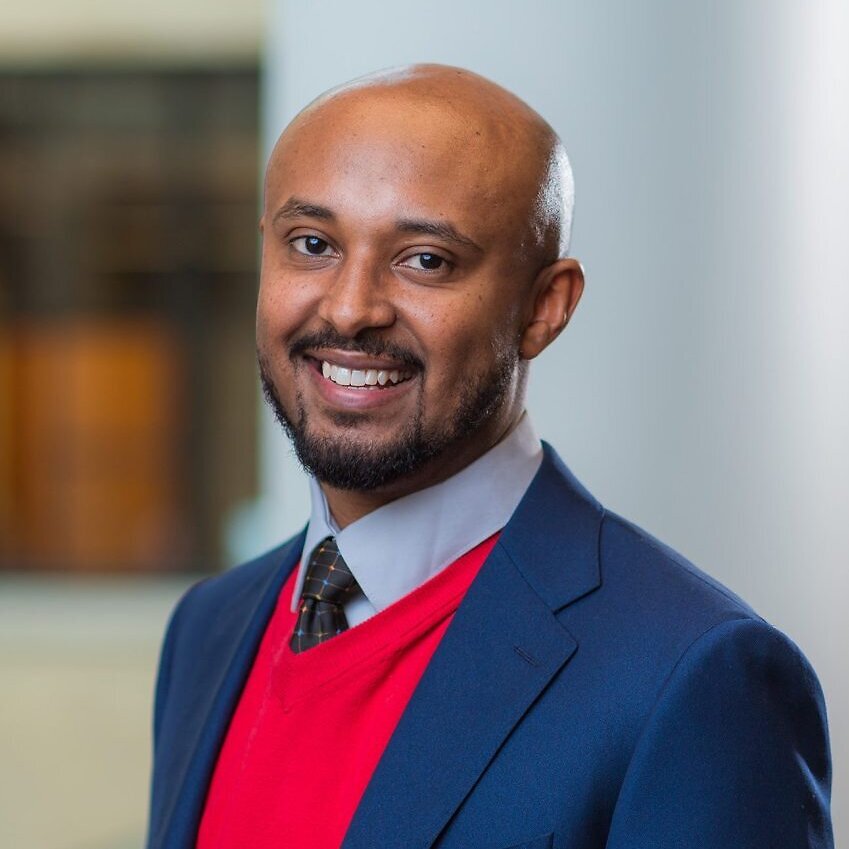
Iwnetim Abate is the Chipman Career Development Professor and an assistant professor in the Department of Materials Science and Engineering at MIT. He completed his PhD at Stanford University and served as both Miller and Presidential Postdoctoral Fellow at University of California, Berkeley. Before his PhD, he conducted research at IBM Almaden and Los Alamos National Laboratory for two years. Abate has been recognized as one of Chemical & Engineering News’ “Talented 12,” named a Bose Fellow by MIT, and awarded the Young Investigator Award by the International Society for Solid State Ionics. He is the principal investigator on an ARPA-E-funded project for geological hydrogen and has recently co-founded a company, Addis Energy, to commercialize his invention of geological ammonia, a new method for producing ammonia with significantly lower emissions and competitive costs compared with current methods. Outside the lab, Abate is a co-founder and president of SciFro, a nonprofit organization that empowers African youth to tackle local challenges through scientific research and innovation. The organization is supported by the Bill & Melinda Gates Foundation, the National Science Foundation, and the American Physical Society.
Morgan Andreae
Executive Director, Future Energy Systems Center, MIT Energy Initiative
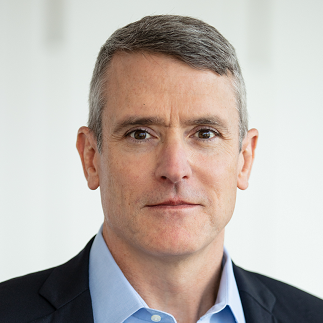
Morgan Andreae is the executive director of MITEI’s Future Energy Systems Center. Prior to joining MITEI, Andreae was the executive director of technology and innovation at Cummins where he led teams in the development of new battery, fuel cell, electrolyzer, and electric traction technologies. Over the course of his career Andreae has held a variety of roles in technology development, strategy, and product development, with a consistent focus on bringing more sustainable technology to market. Andreae holds over 25 patents on diesel, hybrid-electric, and electric powertrain technology. He has a PhD in mechanical engineering from MIT, a Masters and Bachelors in engineering from Dartmouth College, and a Bachelors in history from Haverford College.
Erik G. Birkerts
Chief Growth Officer, LanzaJet
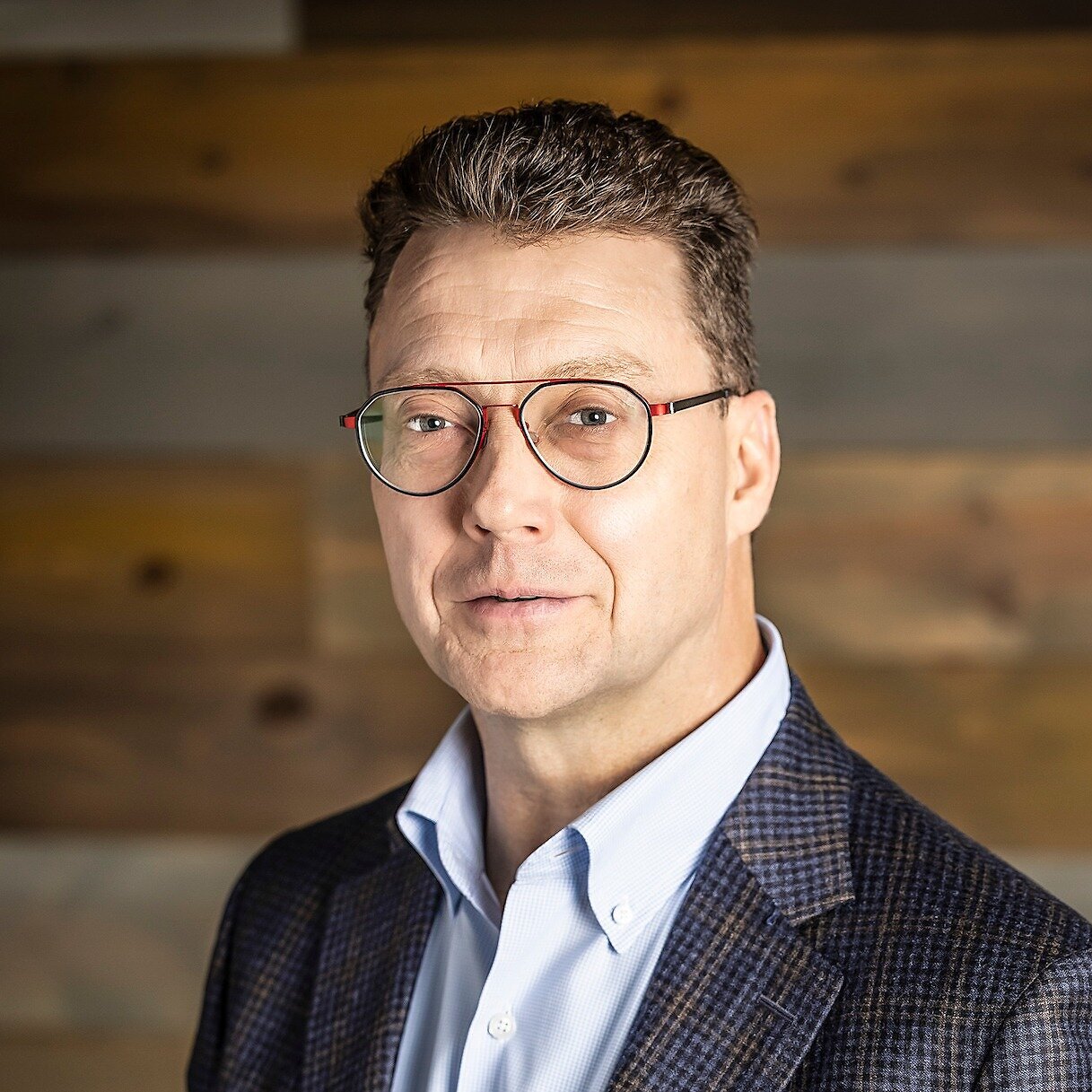
Erik G. Birkerts oversees LanzaJet’s growth strategy and operational execution as it rapidly scales both domestically and internationally. Birkerts has spent his professional career in high-growth, complex operating environments. Prior to LanzaJet, Birkerts was the CEO of Evergreen Climate Innovations. Evergreen, a Chicago-based venture catalyst formerly known as Clean Energy Trust, finds, funds, and grows companies commercializing clean technologies. Under his leadership, Evergreen invested in 43 companies, supported the portfolio in raising over $500 million in follow-on funding and stewarded 5 successful investment outcomes through acquisitions. Birkerts has also been on the senior management teams for two IPOs of venture capital backed companies. Birkerts currently serves on the Board of Directors for Milbank Manufacturing and chairs the Audit Committee. Milbank is one of the largest U.S. manufacturers of electrical metering equipment, components, and EV charging infrastructure. He also served as an independent Board Director for Metrus Energy, the pioneering “Energy Efficiency As A Service” financier, helping guide the company through its acquisition by Energy Capital Partners in 2023. Birkerts began his career at the Federal Reserve Bank of New York, working on large cross-border financial transactions. Birkerts earned his MBA from the University of Chicago Booth School of Business. He has a BA with honors in economics and international relations from Tufts University, where he was a member of the NCAA soccer team for four years.
Duane S. Boning
Vice Provost for International Activities, MIT; Clarence J. LeBel Professor, MIT Department of Electrical Engineering and Computer Science
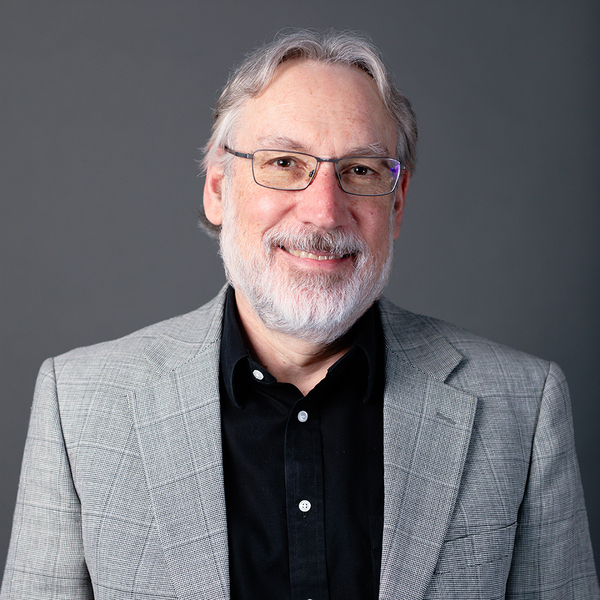
Duane Boning is the vice provost for international activities, providing intellectual leadership, guidance, and oversight of the Institute’s international engagements and policies. As the Clarence J. LeBel Professor in the Department of Electrical Engineering and Computer Science (EECS), his research focuses on machine learning and statistical methods for modeling and control of variation in semiconductor and photonic manufacturing processes, devices, and circuits, with more than 300 journal and conference publications on these topics.
Prior to joining the faculty MIT in 1992, Boning worked at Texas Instruments from 1991 through 1992. He served as editor-in-chief of the IEEE Transactions on Semiconductor Manufacturing from 2001 to 2011. He has held several leadership positions at the Institute, serving as associate department head of EECS from 2004 to 2011 and as associate chair of the MIT Faculty from 2019 to 2021. Among his previous leadership roles in international collaborations, Boning served as faculty lead of the MIT/Masdar Institute Cooperative Program and faculty lead of the MIT Skoltech initiative. He is currently the engineering faculty co-director for MIT’s Leaders for Global Operations Program and faculty co-director for the Machine Intelligence in Manufacturing and Operations effort. Boning is a Fellow of the IEEE for contributions to modeling and control in semiconductor manufacturing.
Boning earned his SB, SM, and PhD degrees from MIT in electrical engineering and computer science.
Martha Broad
Executive Director, MIT Energy Initiative
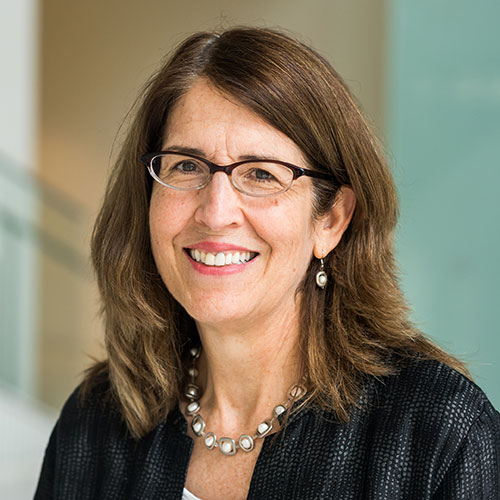
Martha Broad is MITEI’s executive director. As part of the leadership team, she works to link science, innovation and policy to transform the world’s energy systems. She has a track record of successfully partnering with business, government and nonprofit stakeholders to support the clean energy transition. At MITEI, she works closely with member companies who collaborate with MIT researchers on a spectrum of topics, including the Future Energy Systems Center.
In addition, she spearheads MITEI’s collaboration with the U.S. Department of Energy to design, manage, and host the annual Clean Energy Education and Empowerment (C3E) Women in Clean Energy Symposium and serves as a C3E Ambassador.
Previously, as part of the senior management team of the Massachusetts Clean Energy Center (MassCEC), Broad led programs and studies that focused on the commercialization of clean energy technologies. By collaborating with universities and public and private partners, she helped facilitate the state’s successful installation of hundreds of megawatts of wind and solar systems.
Samantha Coday
Assistant Professor, MIT Department of Electrical Engineering and Computer Science

Samantha Coday is an assistant professor of Electrical Engineering and Computer Science at the Massachusetts Institute of Technology and a principal investigator in the MIT Research Laboratory of Electronics. She received the MS degree and PhD degree in electrical engineering and computer sciences in 2019 and 2023, respectively, from the University of California, Berkeley. Her research interests include ultra-dense power converters enabling renewable energy integration, hybrid electric aircraft, and future space exploration. She focuses on the optimization, design, and control of hybrid switched-capacitor converters. Coday is recipient of several APEC best presentation awards and the NSF CAREER award.
Manlio Coviello
President, Energy Dome Latam
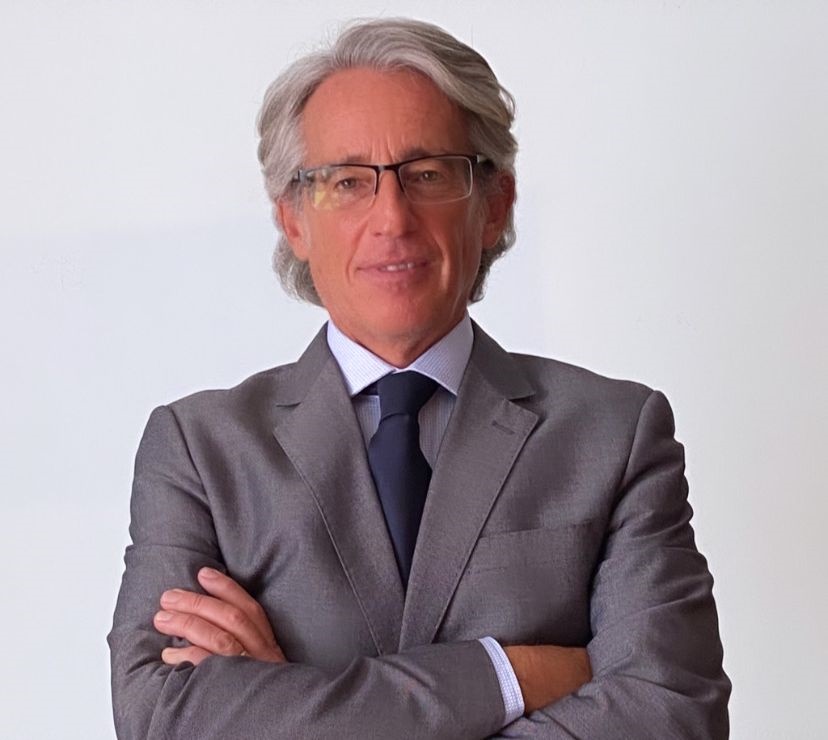
Manlio Coviello received a doctorate (cum Laude) in geophysics (Genoa University) and a master in business administration (Bocconi University, Milan). Currently, he is an assistant professor in energy planning at Catholic University of Chile; an associate professor in energy transition and co-coordinator of the international master on climate change at the Polytechnic University of Turin.
Currently, Coviello is chairman of Energy Dome Latam and a member of the Scientific Advisory Board of TERNA spa. He has been chairman of the Board of TERNA PLUS and Presidente & CEO of Terna Uruguay, Terna Brasil, Terna Chile, and Terna. Previously, he was chief of the Energy & Mining Department, Economic Commission for Latin America, United Nations.
Coviello is member of the following Advisory Boards: Energy Center, Polytechnic University Turin, PoliTO – Italy; Harvard Electricity Policy Group, Harvard Kennedy School Government, USA; and American Business Dialogue Energy & Natural Resources Group, IADB, USA. In 2012, Coviello acted as senior fellow professor at the IASS (Institute for Advanced Sustainability Studies) in Potsdam, Germany, working with Nobel Prize in Physics Professor Carlo Rubbia, on advanced materials & technologies for renewable energies and energy storage. In April 2024, he acted as senior consultant for the Bureau of Intelligence, U.S. Department of State, on nearshoring industry for critical minerals.
Deepjyoti Deka
Research Scientist, MIT Energy Initiative
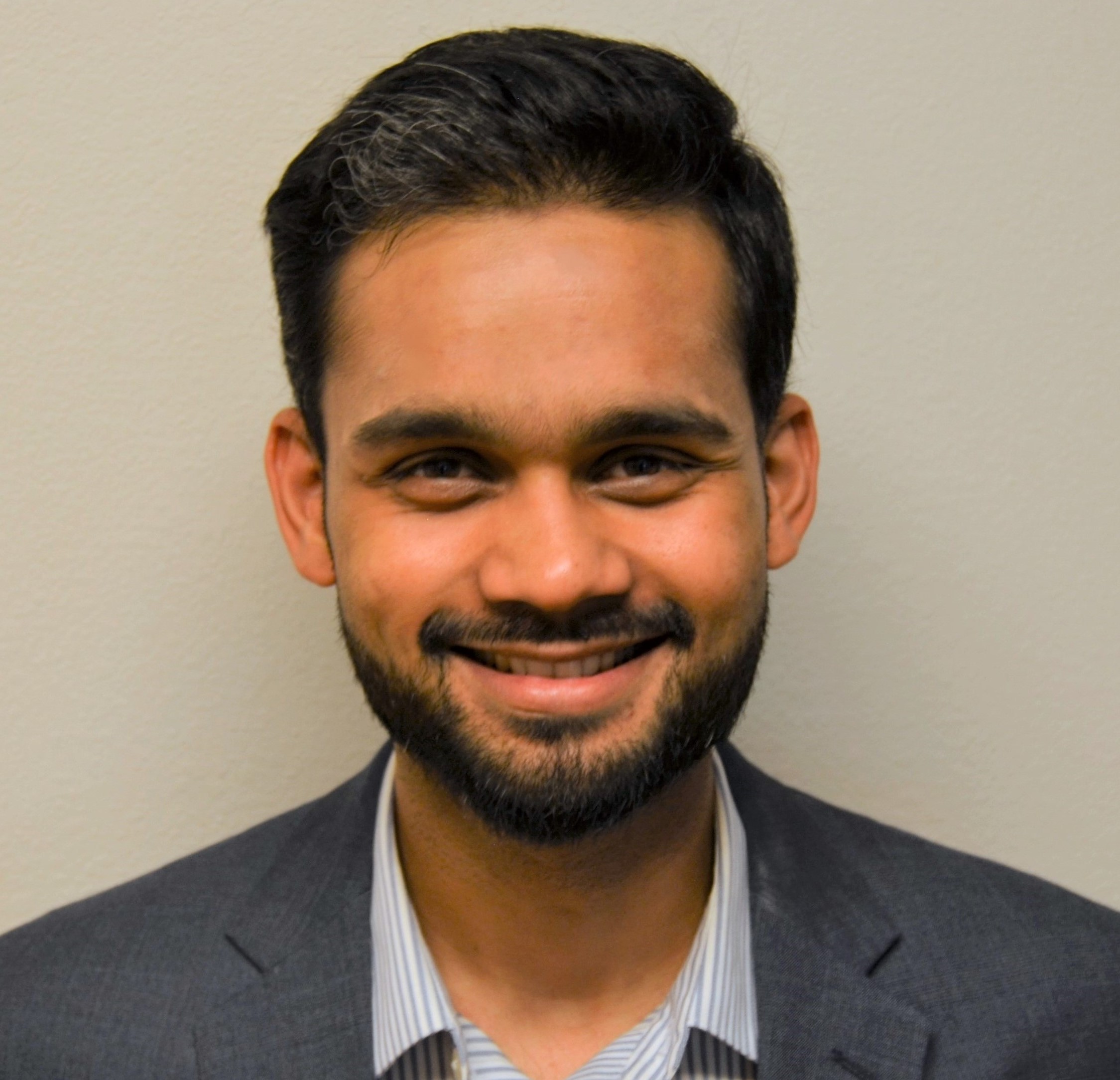
Deep Deka is a research scientist at MIT Energy Initiative. His research interests lie at the intersection of machine learning and optimization for tractable sensing and secure operation in renewable rich power grids. From 2018-2024, he was a staff scientist in the Theoretical Division at Los Alamos National Laboratory and served as a PI/co-PI for DOE and internal projects on machine learning in power systems and optimization of interdependent networks. He received the MS and PhD degrees in electrical and computer engineering (ECE) from the University of Texas, Austin, TX, USA, in 2011 and 2015, respectively. He completed his undergraduate degree in electronics and communication engineering (ECE) from IIT Guwahati, India with an institute silver medal as the best outgoing student of the department in 2009. Deka is a senior member of IEEE and has served as an editor on IEEE Transactions on Smart Grid.
Tali Dotan
Postdoctoral Associate, Furst Lab, MIT Department of Chemical Engineering

Tali Dotan is a postdoctoral associate in the Department of Chemical Engineering at MIT, specializing in biosensing and electrochemical devices, including bacterial sensors and bio-assisted fabrication. Her research addresses environmental sustainability through bridging engineering, materials science, and bioelectrochemistry.
She was a 2023-2024 MITEI Energy Scholar. Dotan is the recipient of several awards, presents internationally, and is committed to mentoring and advancing diversity in STEM.
Pablo Duenas-Martinez
Research Scientist, MIT Energy Initiative
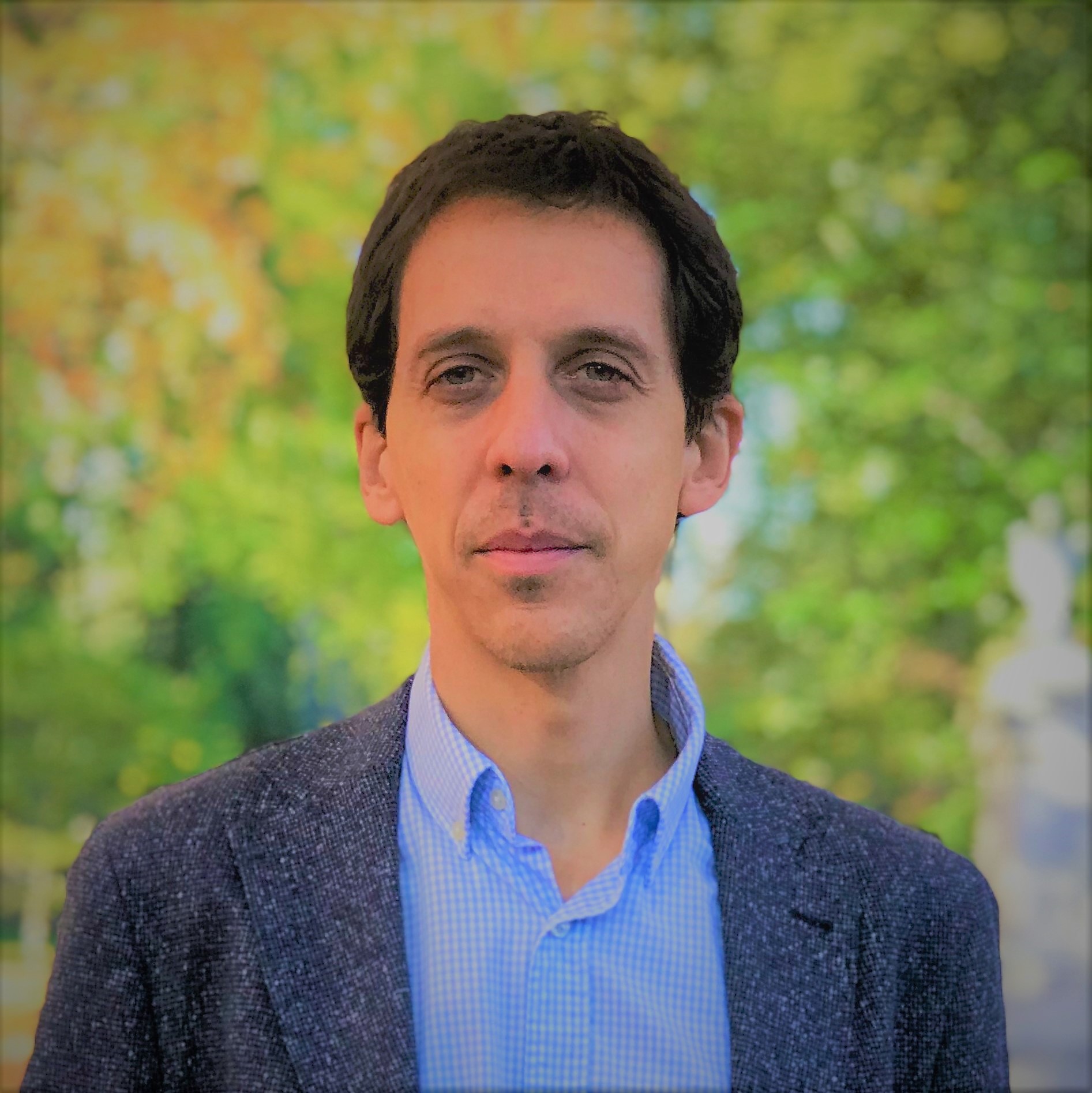
Pablo Duenas-Martinez is a research scientist at the MIT Energy Initiative, research assistant professor at Universidad Pontificia Comillas, and a gas-electricity advisor for the Florence School of Regulation at the European University Institute. His research area embeds the economic and regulatory modeling and analysis, and the role of traditional and new generation technologies in shaping the energy systems of the future, in low- to high-income countries, within a carbon-constrained world. He has published on topics such as liberalization and regulation of gas and electricity markets, energy security of supply and resiliency in decarbonizing economies, impact of distributed energy resources, analysis and regulation for universal energy access, and mathematical modeling of energy systems. During his career, he has worked with energy companies, as well as government and regulatory agencies, on research projects and to provide advice aimed at improving operations and investments in energy systems worldwide. He has participated in research projects funded by major U.S. governmental agencies (NSF and ARPA-E), and in more than 30 research contracts, acting in three of them as principal investigator. He has more than 50 publications as JCR peer-reviewed papers, conference and non-JCR papers, technical reports and studies, and book chapters. He has presented in international conferences, and been invited as an expert to workshops organized by, among others, the Inter-American Development Bank and the International Energy Agency. He obtained his BS in industrial engineering, MS in electric power systems, and PhD in electrical engineering at the Universidad Pontificia Comillas in Madrid, Spain; and received a BS in economics from the National Distance Education University in Madrid, Spain.
Randall Field
Director of Research, MIT Energy Initiative
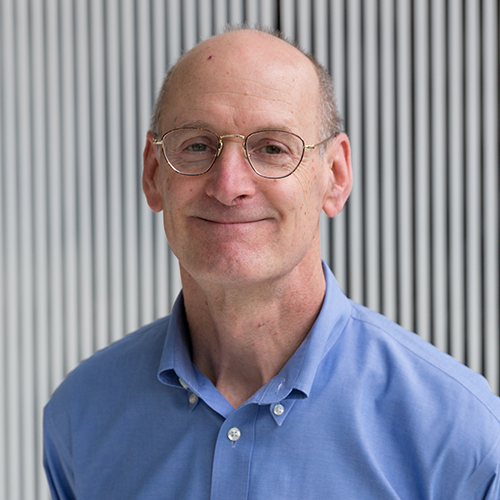
As the director of research, Randall Field supervises the research performed by MITEI research scientists and their teams. He was also executive director of MIT’s fusion study, which released the 2024 report The role of fusion energy in a decarbonized electricity system, examining the global multidecadal dynamics of the energy transition and how fusion energy can contribute. He was previously executive director for MITEI’s Future Energy Systems Center and Mobility Systems Center. He was also executive director for MIT’s Mobility of the Future study, which produced the Insights in the Future Mobility report covering global projections of alternative fuel vehicle fleets and energy consumption, deployment of charging and fueling infrastructure, attitudes towards mobility, and the impacts of innovative technologies and business models on urban mobility. As executive director for the Conversion Research Program at MIT for 10 years, Field worked with a multidisciplinary team of researchers to explore various conversion technologies for production of alternative fuels. Prior to MIT, Field worked for Aspen Technology for 23 years. Field received a SM in chemical engineering practice from MIT and a BS in chemical engineering from Caltech.
Kelly Sims Gallagher
Dean and Professor of Energy and Environmental Policy, The Fletcher School, Tufts University

Kelly Sims Gallagher is the tenth Dean of The Fletcher School, Tufts University. A professor of Energy and Environmental Policy, she also directs the Climate Policy Lab and co-directs the Center for International Environment and Resource Policy at Fletcher. The Climate Policy Lab is dedicated to identifying which climate policies work, which don’t, and why in countries around the world, with particular emphasis on major emerging economies including China, India, Ethiopia, South Africa, Indonesia, Mexico, and Brazil.
Gallagher served in the second term of Obama Administration as a senior policy advisor in The White House Office of Science and Technology Policy, and as senior China advisor in the Special Envoy for Climate Change office at the U.S. State Department.
Gallagher is a non-resident scholar at the Carnegie Endowment for International Peace. She is a member of the board of the Belfer Center for Science and International Affairs at Harvard University and is a member of the Council on Foreign Relations and the National Committee on U.S.-China Relations.
Broadly, she focuses on U.S.-China relations, green industrialization, climate policy, energy innovation, and low-carbon, resilient models for achieving sustainable prosperity. She is the author of Titans of the Climate (The MIT Press 2018), The Global Diffusion of Clean Energy Technologies: Lessons from China (MIT Press 2014), China Shifts Gears: Automakers, Oil, Pollution, and Development (The MIT Press 2006), and dozens of other articles and book chapters.
Mike Gerty
Director of Powertrain Planning and Integration, PACCAR Inc.
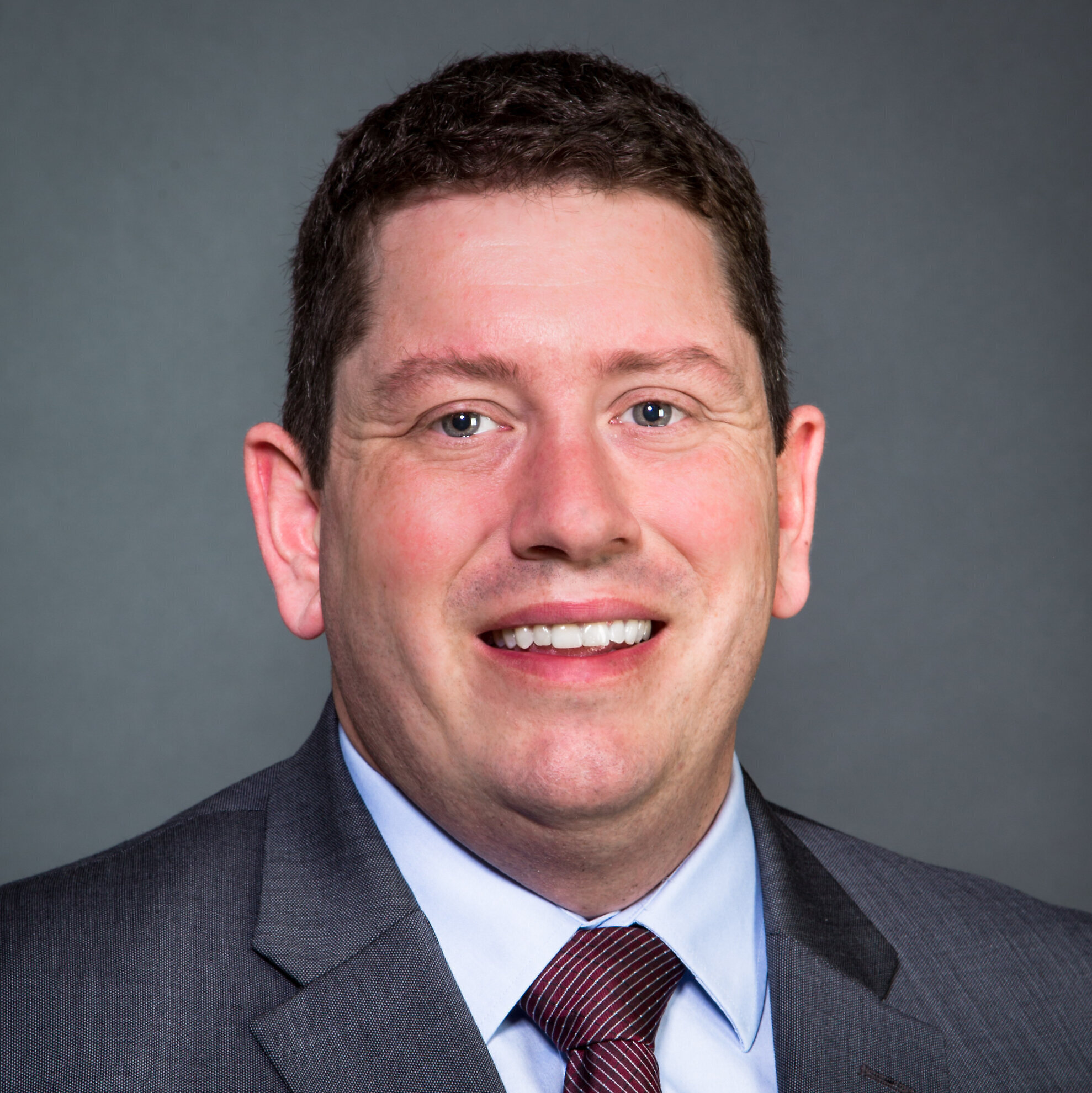
Mike Gerty is the director of Powertrain Planning and Integration at PACCAR Inc. He joined PACCAR in 2005 and has managed engine testing, engine current product engineering, and advanced technology development engineering teams. Most recently Gerty was responsible for coordinating technology strategy and research across the global organization. Currently Gerty is responsible for PACCAR’s powertrain product plan, powertrain technology roadmap, definition of powertrain requirements, and verification of performance from concept through production. His scope covers both zero-emissions and conventional powertrains. Previously Gerty worked in engine controls development at Westport Innovations. Gerty holds a Master’s of Science Degree from the Massachusetts Institute of Technology where he performed research in the Sloan Automotive Laboratory.
Jeffrey Goldmeer
Senior Director of Technology Strategy, Technology Strategy & Ventures, GE Vernova
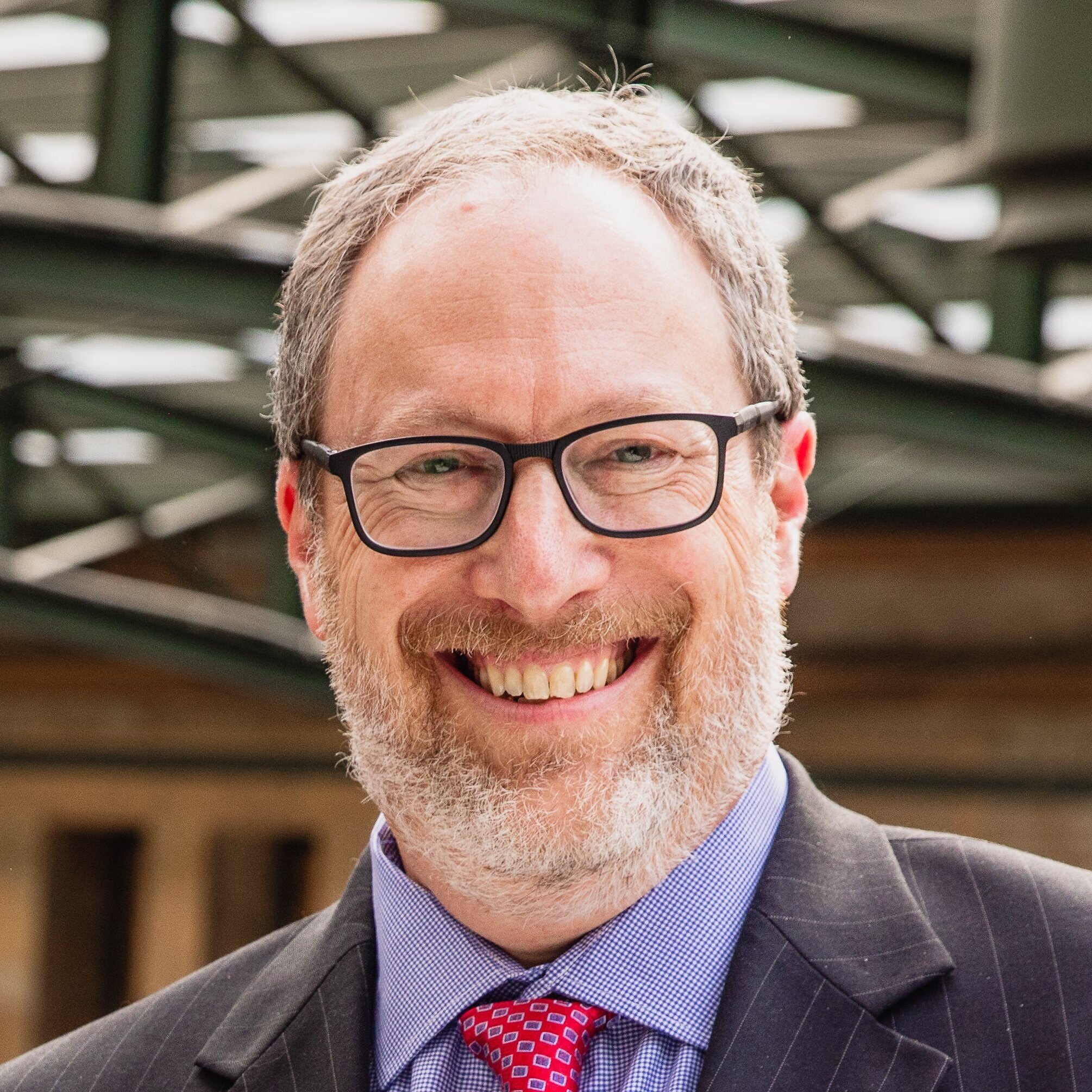
Jeffrey Goldmeer is a senior director of Technology Strategy within GE Vernova’s corporate Technology Strategy & Ventures organization. His primary focus is leading cross business teams to deliver investment recommendations for a variety of technologies including hydrogen and e-fuels. Goldmeer is also co-creator and co-host of GE Vernova’s award-winning decarbonization podcast, Cutting Carbon, which has over 130,000 downloads in 155 countries. Goldmeer is a subject matter expert on topics related to the energy transition as well as low carbon fuels and combustion. He led multiple first of a kind projects demonstrating operation of both aeroderivative and heavy-duty gas turbines on blends of hydrogen and natural gas. Goldmeer has been invited to policy discussions, technical meetings, and webinars with multiple government, non-government policy/advocacy organizations, universities, and investment firms. These include the U.S. Department of Energy, the U.S. Department of State, the U.S. National Academy of Sciences, the Business Council of Australia, Princeton University, the King Abdullah University of Science and Technology, Hong Kong Polytechnic University, Bank of America, and multiple non-U.S. energy ministries. Prior to joining GE Vernova, Goldmeer was a senior research scientist at Southwest Sciences, and a National Research Council post-doctorate research associate at NASA. Goldmeer holds a PhD in mechanical engineering from Case Western Reserve University, and a BS in mechanical engineering from Worcester Polytechnic Institute. He has 13 patents, over 100 conference papers/presentations, and contributed to three recent books on hydrogen and renewable fuels.
William H. Green
Director, MIT Energy Initiative; Hoyt C. Hottel Professor, MIT Department of Chemical Engineering
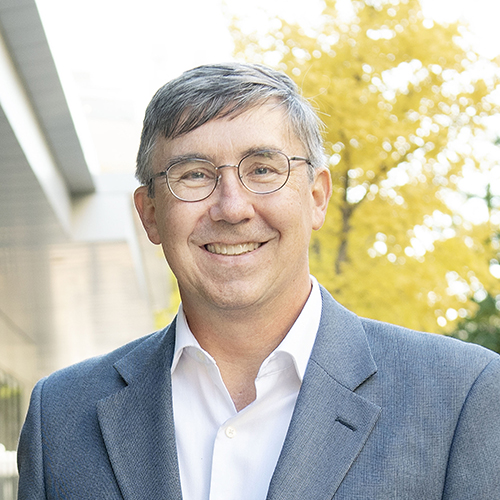
William H. Green, the Hoyt C. Hottel Professor at MIT, is a world leader in chemical kinetics, reaction engineering, prediction of chemical reactions and properties, and in development of related software. He has led many combined experimental/modeling research projects related to fuels, combustion, pyrolysis, and oxidative stability, and he invented an instrument to directly measure rate coefficients for multi-channel reactions. He developed computer methods to predict the behavior of complicated reacting mixtures, many of which are included in the open source Reaction Mechanism Generator software package, a type of AI expert system for reactive chemistry. The associated popular website rmg.mit.edu includes estimators for many chemical properties and several databases. Green co-invented several algorithms and numerical methods helpful for handling complicated chemical kinetics. His group has also developed machine-learning methods and software (ASKCOS and Chemprop) for accurately predicting the products of organic reactions and for predicting many chemical and reaction properties. Chemprop, whose recent versions were developed primarily by Green’s research group, is currently the most popular open-source chemistry software on GitHub. It is heavily used by the pharmaceutical industry, to predict the properties of proposed new drug molecules. Green also invents and analyzes technologies to reduce greenhouse gas emissions, particularly in the transportation/fuel sector. Two of his greenhouse-gas reduction inventions are now being commercialized, one by Thiozen, a company he co-founded. Recently he has been developing and analyzing technology options for decarbonizing the freight sector, with a special interest in long-haul trucking.
Green earned his BA from Swarthmore College, and his PhD in physical chemistry from the University of California at Berkeley under the supervision of C. Bradley Moore. After postdocs at Cambridge University with Nicholas Handy and at the University of Pennsylvania with Marsha Lester, he worked for Exxon Research & Engineering for six years before joining the Chemical Engineering faculty at MIT in 1997. Green has co-authored more than 350 journal articles, which have been cited more than 23,000 times. He is a fellow of the AAAS and of the Combustion Institute, and has received the American Chemical Society’s Glenn Award in Energy & Fuel Chemistry and the AIChE’s Wilhelm Award in Reaction Engineering. He convened and organized the International Conference on Chemical Kinetics in 2011, and now serves as treasurer of that conference series. More than 20 of his former graduate or postdoctoral students are now tenured or tenure-track faculty. He previously served as the editor of the International Journal of Chemical Kinetics, as the faculty chair of MIT’s Mobility of the Future project, and as the executive officer of the MIT Department of Chemical Engineering. He was appointed director of the MIT Energy Initiative in Spring 2024.
Aristide Gumyusenge
Assistant Professor, MIT Department of Materials Science & Engineering
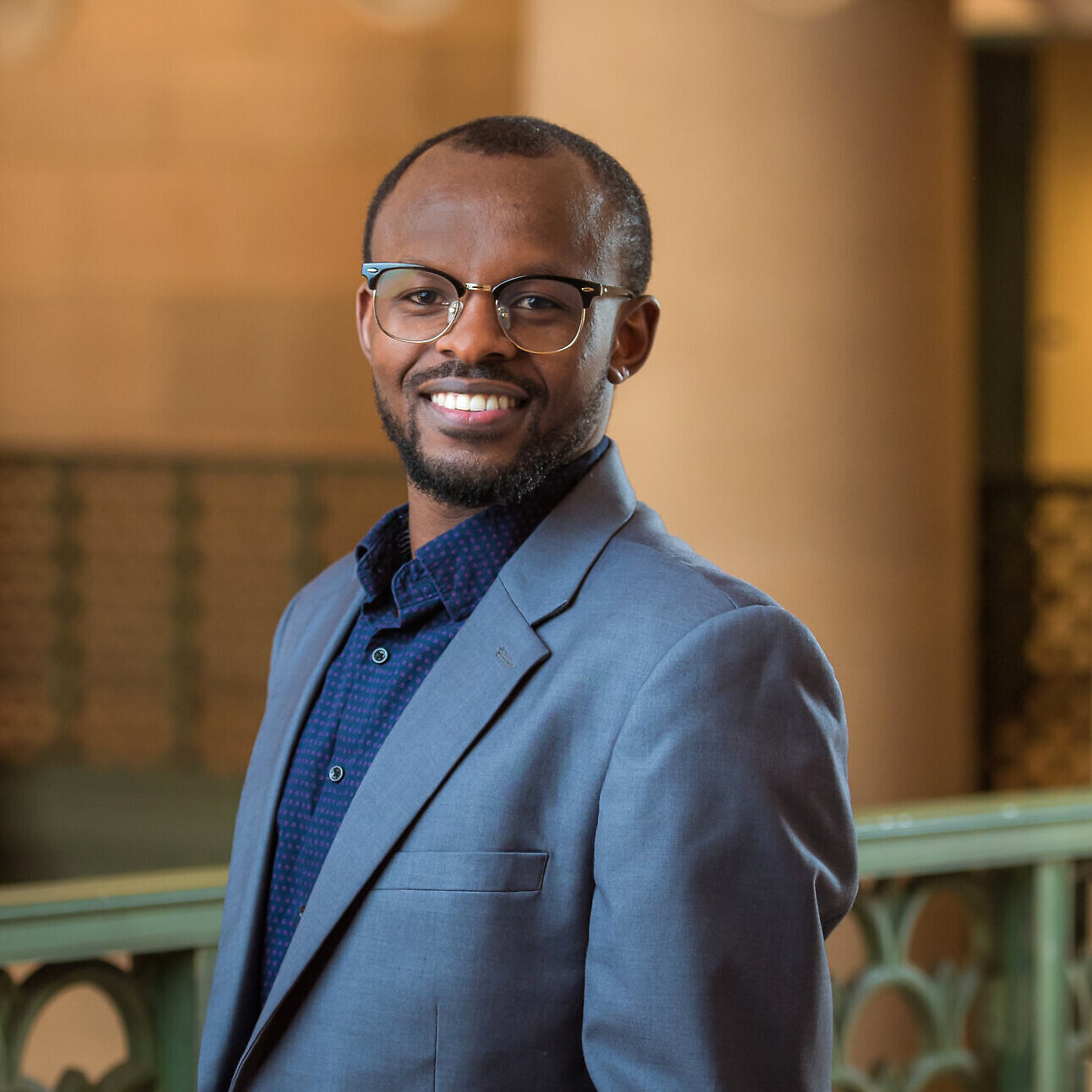
Aristide Gumyusenge received a BS in chemistry from Wofford College and a PhD in chemistry from Purdue University. Before joining MIT’s Department of Materials Science & Engineering, he was a postdoctoral fellow of the Geballe Lab for Advanced Materials at Stanford University. Gumyusenge’s research background and interests are in semiconducting polymers, their processing and characterization, and their role in the future of electronics. Particularly, he has tackled long-standing challenges in operation stability of semiconducting polymers under extreme heat and has pioneered high-temperature plastic electronics. At MIT, Gumyusenge’s research group, OMSE Lab, focuses on developing novel organic semiconducting materials and using them to build organic electronic devices and body-machine interfaces. Through polymer design, novel processing strategies, large-area manufacturing of electronic devices, he is interested in relating molecular design to device performance, especially transistor devices that can mimic and interface with biological systems.
Asegun Henry
Hastopoulos Professor of Mechanical Engineering , MIT Department of Mechanical Engineering
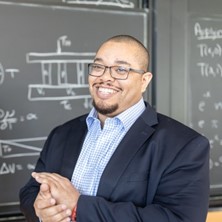
Asegun Henry started as an associate professor in the Department of Mechanical Engineering at MIT in 2018, where he directs the Atomistic Simulation & Energy (ASE) Research Group. Prior to MIT, he was an assistant professor in the Woodruff school of Mechanical Engineering at Georgia Tech from 2012 to 2018. He holds a BS degree in mechanical engineering from Florida A & M University as well as a MS and PhD in mechanical engineering from MIT. Henry’s primary research is in heat transfer, with an emphasis on understanding the science of energy transport, storage and conversion at the atomic level, along with the development of new industrial scale energy technologies to mitigate climate change. After finishing his PhD, he worked as a postdoc in the Materials Theory group at Oak Ridge National Laboratory (ORNL) and then as postdoc in the Materials Science Department at Northwestern University. After Northwestern, he worked as a fellow in the Advanced Research Projects Agency – Energy (ARPA-E), where he focused on identifying new program areas, such as higher efficiency and lower cost energy capture, conversion, and storage. Henry has made significant advances and contributions to several fields within energy and heat transfer, namely: solar fuels and thermochemistry, phonon transport in disordered materials, phonon transport at interfaces, and he has developed the highest temperature pump on record, which used an all-ceramic mechanical pump, to pump liquid metal above 1400°C. This technological breakthrough, which is now in the Guinness Book of World Records, has opened the door for new high temperature energy systems concepts, such as methane cracking for CO2 free hydrogen production and a new grid level energy storage approach affectionately known as “Sun in a Box”. The technology is projected to be cheaper than any other competing approach, and is being scaled up and commercialized by the company he founded, Fourth Power Inc. Henry has also been the recipient of a number of awards including: the National Science Foundation Waterman Award, the NSF Career Award, the Nokia-Bell Labs Award, the ASME Bergles-Rohsenow Young Investigator Award in Heat Transfer, and many others.
Andrew Inglis
Geothermal Venture Builder, MIT Proto Ventures
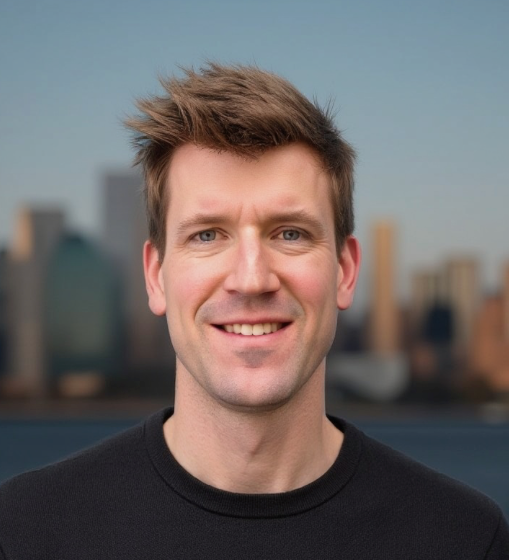
Andrew Inglis is an accomplished applied physicist with over 15 years of experience in transforming electro-physics technologies from concept to market-leading products. As the founder of Silverside Detectors, he developed and commercialized low-cost neutron radiation detectors, specifically designed for large scale deployments for nuclear non-proliferation and agricultural water management.
He has recently joint Proto Ventures, MIT’s Venture Studio, to focus on deploying innovations that will help geothermal become one of the world’s main sources of baseload clean electrical and heat energy.
He earned his PhD in physics from Boston University and MS in engineering science from the University of Virginia.
J.J. Laukaitis
Director of Member Services, MIT Energy Initiative

J.J. Laukaitis is the director of Member Services at the MIT Energy Initiative, where he manages the growth of impactful collaborations between leading corporations and MIT faculty, researchers, and innovators.
Laukaitis has over 25 years of experience in engineering, product management, and large account sales management across multiple industries including mechanical design, software, electronics, and semiconductor manufacturing equipment.
During his industry career Laukaitis has led new revenue growth and business development initiatives at large established corporations and was a key contributor to early revenue generation and the IPO at PTC.
At MIT, Laukaitis has a track record of initiating and growing large, strategic engagements between industry partners and MIT, resulting in mutually beneficial research projects and technology commercialization initiatives. For 11 years, J.J. has worked closely with some of the largest and boldest initiatives across MIT, such as the MIT Energy Initiative, Abdul Latif Jameel World Water and Food Systems Lab, and Advanced Manufacturing Initiatives.
Laukaitis received a bachelor’s degree in mechanical engineering from Lehigh University and a masters in Science from the MIT Sloan School of Management. Laukaitis is a graduate of Leader 2 Leader (L2L), MIT’s nationally-recognized development program for MIT leaders.
Ruaridh Macdonald
Research Scientist, MIT Energy Initiative
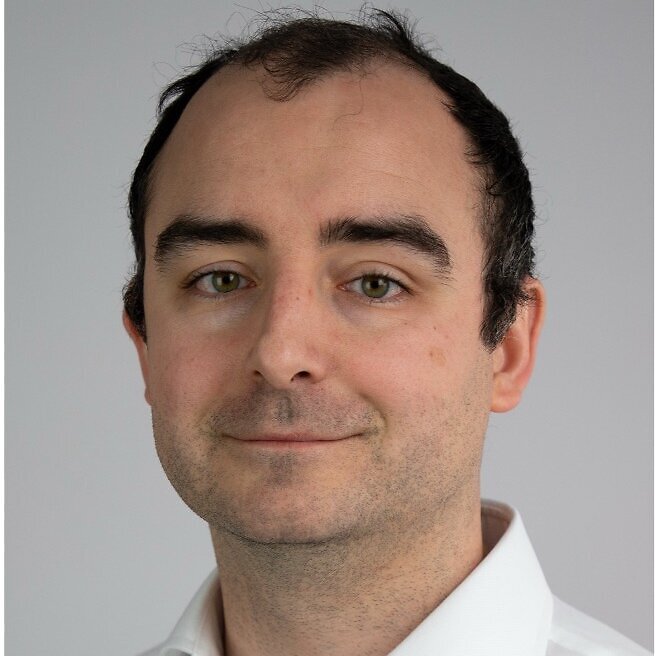
Ruaridh Macdonald is the energy systems research lead at the MIT Energy Initiative. His research explores how best to decarbonize the electricity grid and other sectors, and which technologies and policies will reduce the cost of the energy transition while ensuring grid resilience and security. He is developing novel approaches to modelling infrastructure planning which allow for larger multi-sector energy systems to be optimized over long time periods. This allows for technologies to be modelled with greater fidelity and considering interannual variation in energy supply and demand. Macdonald is a co-lead developer of the GenX, DOLPHYN, and Macro infrastructure planning models. He completed his PhD in nuclear science and engineering at MIT.
Jan Marsh
Global Program Lead, Direct Air Capture, Siemens Energy

Jan Marsh serves as the global program lead for Direct Air Capture at Siemens Energy, based at the Siemens Energy Innovation Center in Orlando, Florida. Originally from Germany, he holds both a Bachelor’s and Master’s degree in aerospace engineering from the University of Central Florida. Marsh has dedicated his entire professional career to Siemens Energy, beginning as a gas turbine heat transfer analyst. He spent several years in gas turbine research and development, where he contributed to the advancement of cutting-edge technologies now implemented in the latest generation of gas turbines. Transitioning from his expertise in gas turbines, Marsh moved into the corporate innovation space as a project manager, leading numerous decarbonization initiatives across various sectors. His work has spanned next-generation solar photovoltaic technologies, grid stability, and most recently, the Direct Air Carbon Capture project. Under his guidance, this project has evolved from a small team of three individuals assessing strategic viability to a global team focused on developing a home-grown technology designed to provide a scalable and economically viable industrial solution for atmospheric carbon capture. Last year, this project received the 2024 Passion for Energy Award for Sustainability from Siemens Energy. Marsh is deeply passionate about innovation and cultivating a culture of creativity, inspiring others to think differently and push boundaries to address complex challenges. He always looks forward to making new connections, building partnerships, and collaborating to transform innovative ideas into reality.
Michael A. Mehling
Deputy Director, MIT Center for Energy and Environmental Policy Research
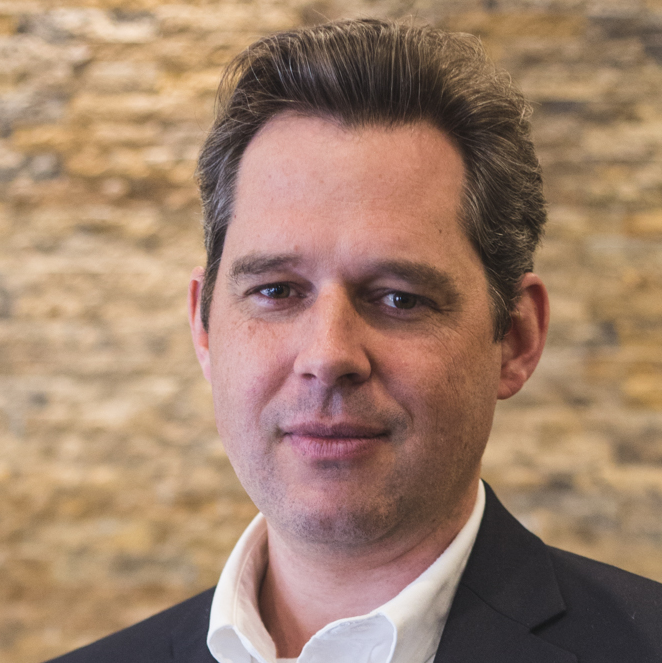
Michael Mehling is deputy director of the MIT Center for Energy and Environmental Policy Research and a professor at the University of Strathclyde. For over two decades, he has worked on climate policy design and implementation at the intersection with environmental, energy, financial market and trade policy, advising decision makers in over a dozen countries, testifying before or briefing legislators in the United States, the United Kingdom, and the European Union, and serving as an expert in several climate litigation and arbitration cases. He currently serves on the boards of directors of Climate Strategies in London, Ecologic Institute in Berlin, and the European Roundtable on Climate Change and Sustainable Transition in Brussels, as well as on the scientific advisory boards of the Enel Foundation in Rome and the Institute for Climate Protection, Energy and Mobility (IKEM) in Berlin. He is also a policy advisor of the Center for Climate and Trade at the Climate Leadership Council (CLC) in Washington, DC, and an associate researcher with the Energy Policy Research Group (EPRG) at the University of Cambridge. He founded and is editor-in-chief of the Carbon & Climate Law Review (CCLR), the first academic quarterly journal focused on climate law and regulation. His work and expertise have been featured in various media outlets, including The Economist, Financial Times, New York Times, Time, USA Today, Wall Street Journal, and Washington Post. Trained as a lawyer and political scientist, he has lived for extended periods in Europe, the United States, and Latin America.
Jennifer Morris
Principal Research Scientist, MIT Center for Sustainability Science and Strategy and MIT Energy Initiative
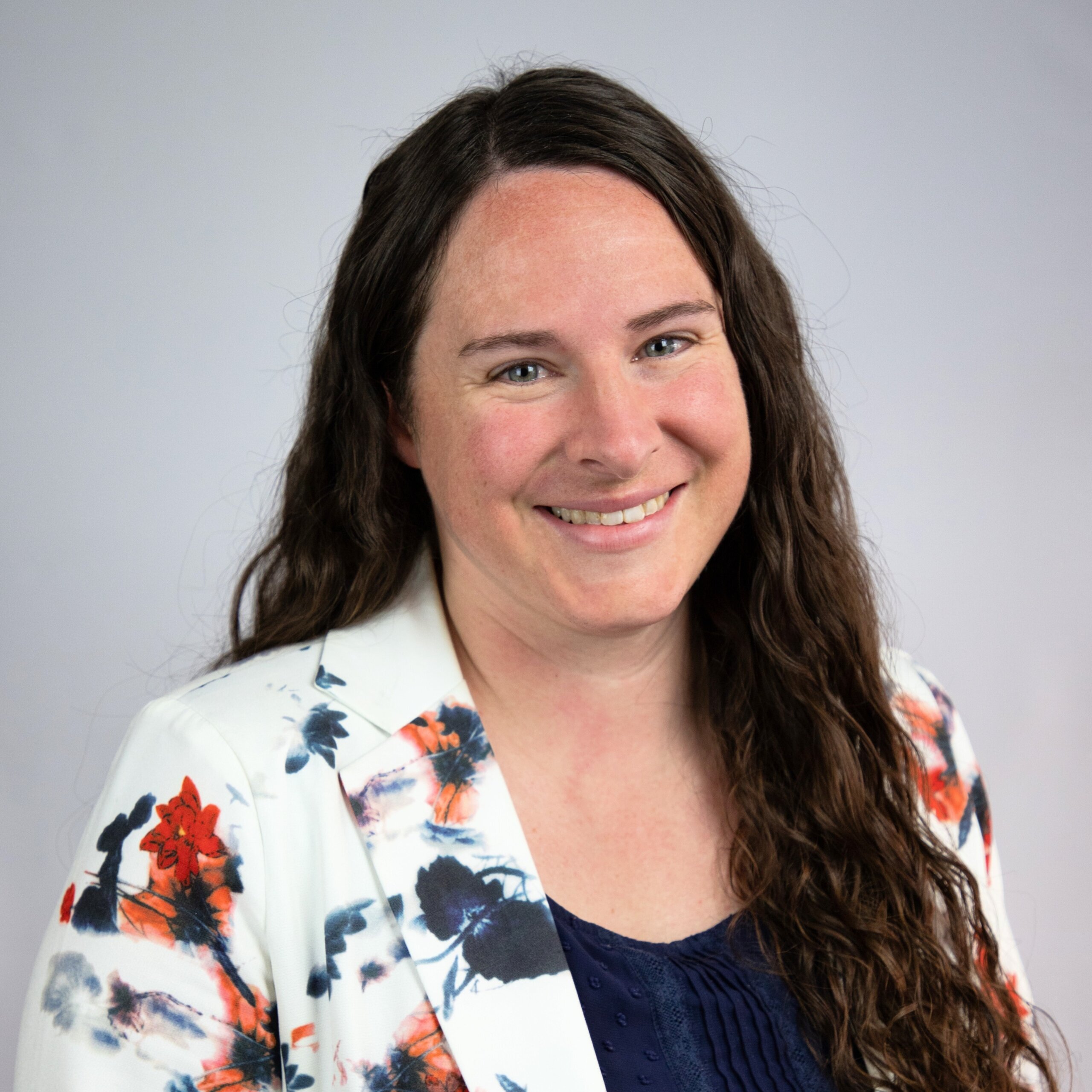
Jennifer Morris is a principal research scientist at the MIT Center for Sustainability Science and Strategy and the MIT Energy Initiative. Her research focuses on energy-economic modeling and linkages between human and natural systems to explore multi-sector feedbacks and implications of different development, decarbonization and investment pathways. She also focuses on uncertainty, risk analysis, and decision-making in energy and environmental systems. This work involves quantifying key uncertainties (e.g. population growth, technology costs, resource availability, etc.), and applying different methodological approaches to models to formally represent such uncertainties and explore how they impact near-term decisions. Morris is a key contributor to the development of the MIT Integrated Global System Modeling (IGSM) framework, focusing on the human system component, the Economic Projection and Policy Analysis (EPPA) model. With this modeling framework, she develops integrated economic and climate scenarios, generates large ensembles, analyzes policy impacts, explores technology and mitigation pathways, and examines multi-sector dynamics. Morris holds a PhD in engineering systems and a MS in technology and policy from MIT.
Annalisa Muccioli
Head of Research & Technological Innovation, Eni SpA
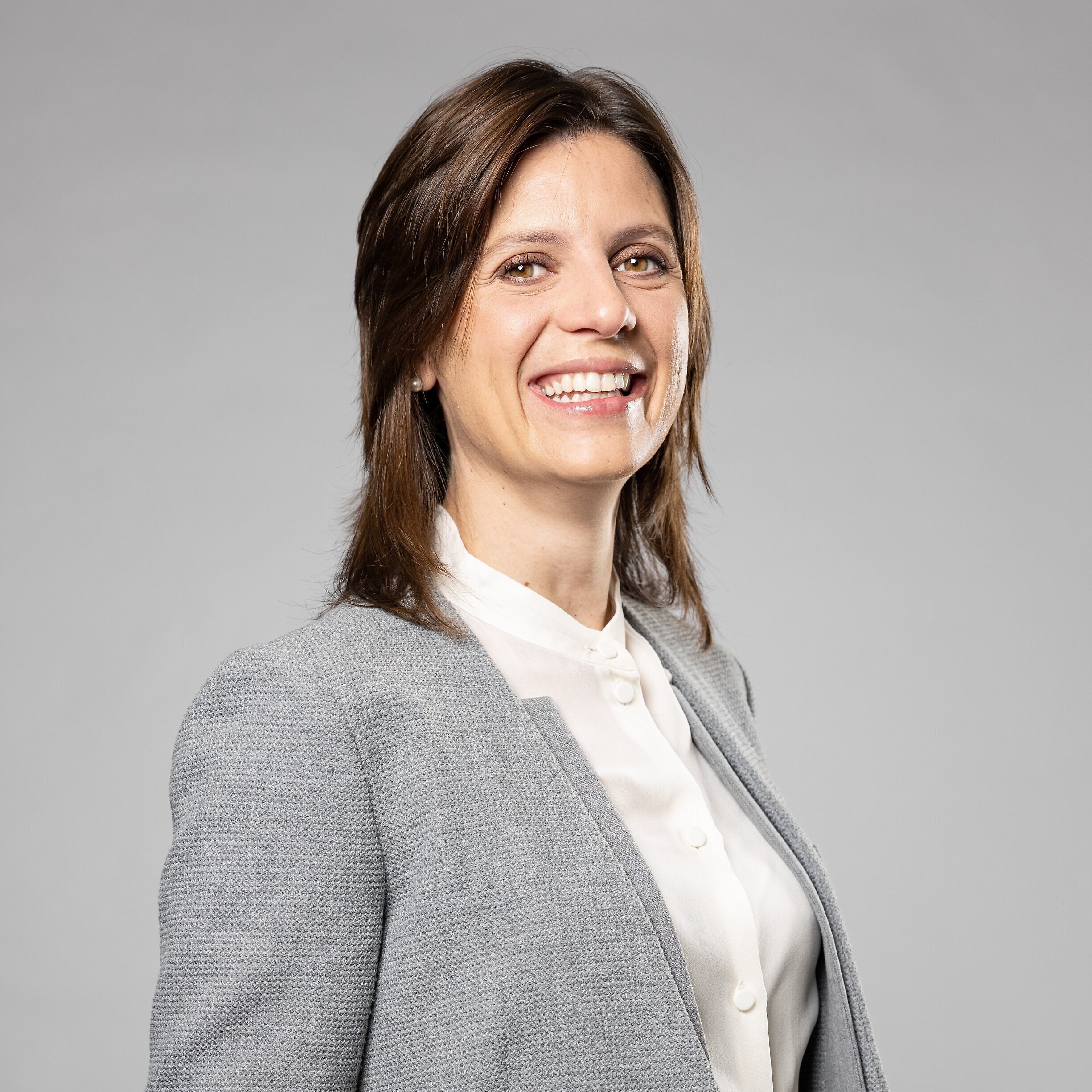
Annalisa Muccioli is head of Research & Technological Innovation at Eni. She is responsible for a network of research centers focused on advanced renewable energy technologies; low-carbon fuels; carbon capture, utilization and storage (CCUS); and the sustainable development of natural resources.
From 2021 to 2024, she served as CEO of EniProgetti, Eni’s engineering company, leading the design of industrial plants across the group’s different businesses.
A management engineer by training, Muccioli joined Eni in 2010 after completing the MEDEA Master’s program, an MBA promoted by the company. She began her career in the Gas & Power division, where she coordinated international subsidiaries, managed long-term gas contract renegotiations, and contributed to the development of the LNG portfolio.
In 2016, she joined the CEO’s office, where she worked for five years, serving as head for the last three. This experience provided her with a comprehensive strategic vision across Eni’s ecosystem and enabled her to take on roles of increasing responsibility within the company.
She also serves on the boards of several Eni companies (including Plenitude and Enilive) as well as external institutions, in representation of Eni.
Jenny Pearce
Vice President of Reliability Assurance and Emergency Management, Avangrid Networks
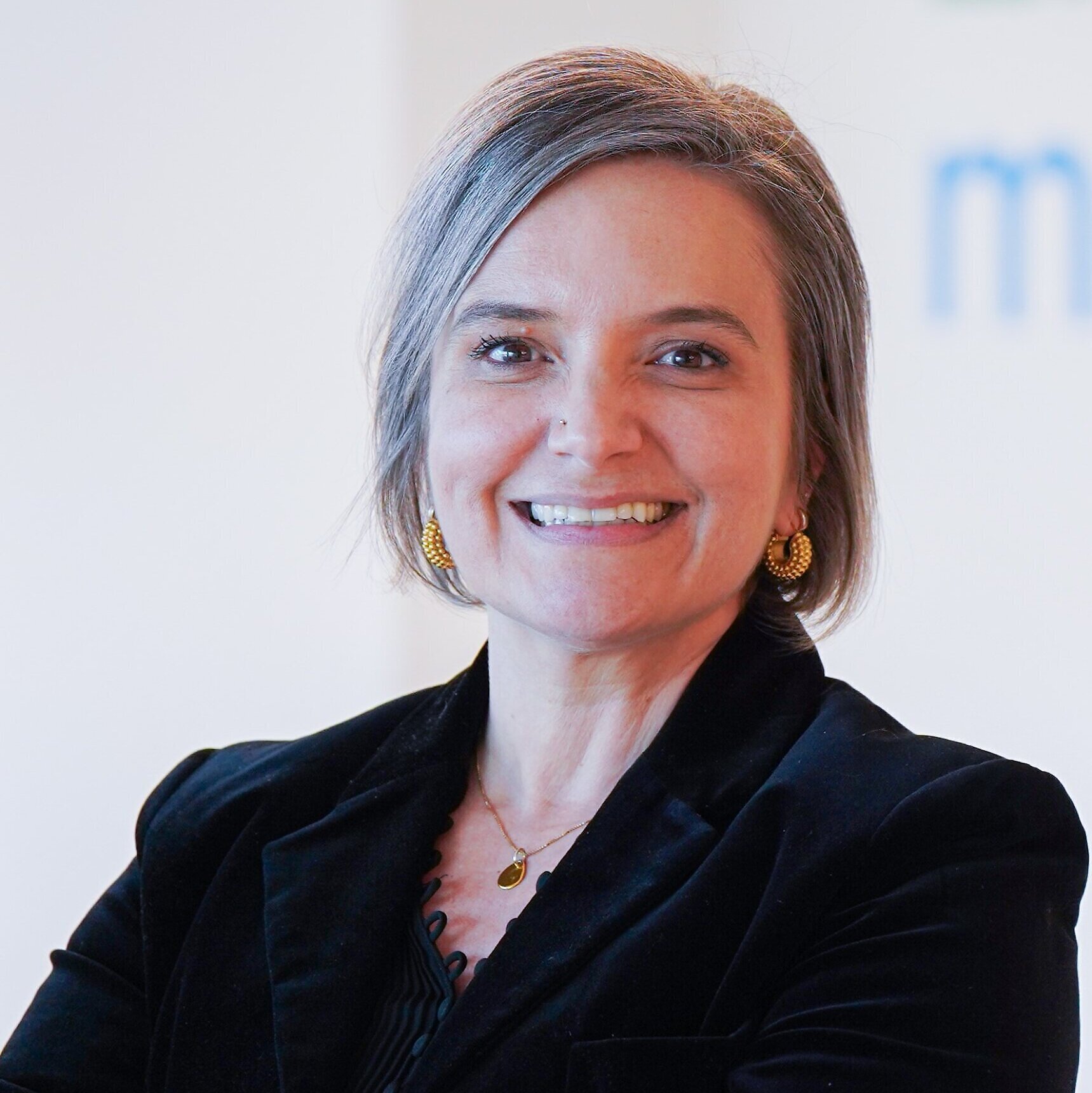
Jenny Pearce currently is the vice president of Reliability Assurance and Emergency Management at Avangrid Networks, an Iberdrola Company. In this role, Pearce is responsible for leading the Emergency Management program for Avangrid’s eight electric and gas utilities throughout New York and New England. She also oversees the companies’ North American Electric Reliability Coordination (NERC) federal compliance program for protecting the bulk electric system. Previously Pearce worked at FEMA and the Department of Health and Human Services (ASPR) developing National Policy for Emergency Preparedness and Response. Prior to joining Avangrid, she was with Southern California Edison for eight years focusing on building All Hazards Resiliency for electric utilities–with a strong focus on earthquake, wildfire, and cyber resilience. Pearce has a master’s in community and regional planning from the University of Oregon and a Bachelor of Arts in communications from Stonehill College. She currently lives in Maine with her two boys, and husband and in her free time enjoys working in the garden and being outdoors.
Desirée Plata
School of Engineering Distinguished Professor of Climate and Energy, Civil and Environmental Engineering, MIT
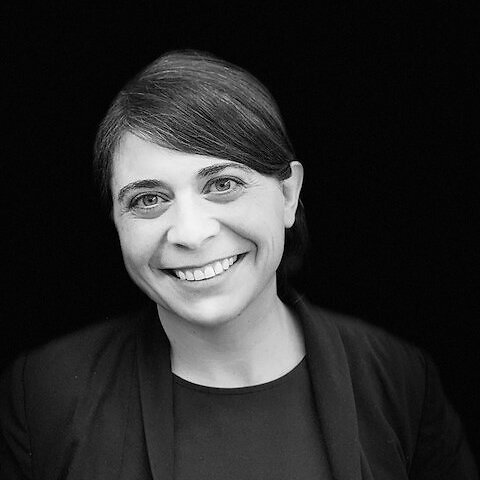
Desirée Plata’s research seeks to maximize technology’s benefit to society while minimizing environmental impacts in industrially important practices through the use of geochemical tools and chemical mechanistic insights. Plata earned her doctoral degree in chemical oceanography and environmental chemistry from the Massachusetts Institute of Technology and the Woods Hole Oceanographic Institution’s Joint Program in Oceanography (2009) and her bachelor’s degree in chemistry from Union College in Schenectady, NY (2003). Plata is an NSF CAREER Awardee (2016), an Odebrecht-Braskem Sustainable Innovation Awardee (2015), a two-time National Academy of Engineers Frontiers of Engineering Fellow (2012, 2020), a two-time National Academy of Sciences Kavli Frontiers of Science Fellow (2011, 2013), a Caltech Resnick Sustainability Fellow (2017), and winner of MIT’s Junior Bose Teaching Award (2019), Edgerton Faculty Achievement Award (2021), and Perkins Graduate Advising Award (2021). Having previously served as John J. Lee Assistant Professor of Chemical and Environmental Engineering at Yale University and associate director for research at the Center for Green Chemistry and Green Engineering at Yale, Plata is now professor of Civil and Environmental Engineering at MIT, director of the MIT Climate and Sustainability Consortium, and co-director of the MIT Superfund Research Program. Plata directs MIT’s Methane Network, serves on the Scientific Advisory Board of Spark Climate, and served on the National Academy of Science Engineering and Medicine’s Atmospheric Methane Removal study (recused). Plata is co-founder of Nth Cycle (nthcycle.com), co-founder and president of Sustainable Chemical Resource Advisors LLC, and co-founder and president of Moxair Inc.
Steve Przesmitzki
Executive Director, United States Council for Automotive Research
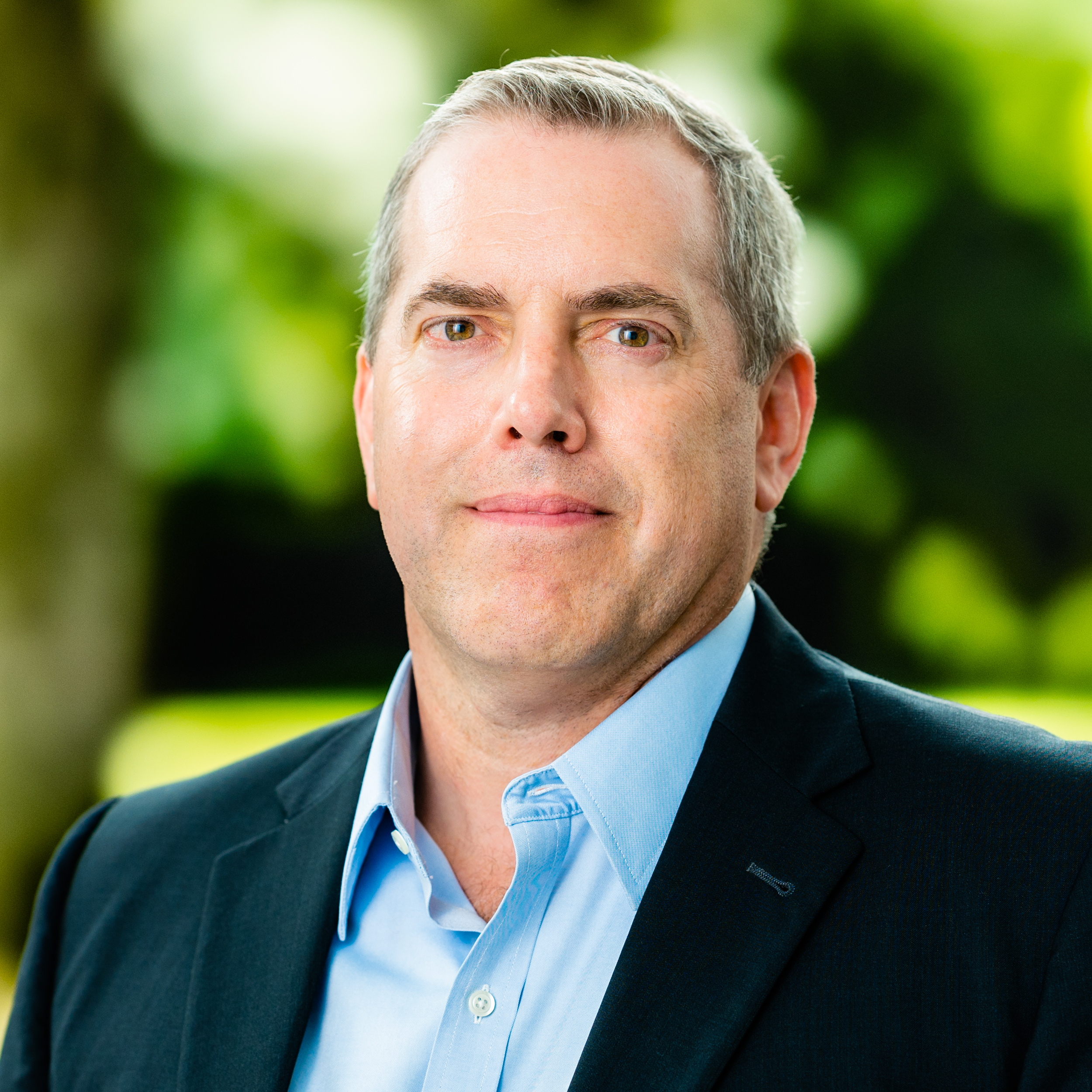
Steve Przesmitzki is executive director of the United States Council for Automotive Research (USCAR). USCAR, founded in 1992 and located in Southfield, MI, is the collaborative automotive technology company for Ford Motor Company, General Motors and Stellantis. Przesmitzki held several other roles with increasing responsibility prior to USCAR.
He was division director for the Transportation and Power Systems Division as well as the laboratory program manager for vehicle technologies research at Argonne National Laboratory in Lemont, IL, just outside Chicago. He was the global head of strategic mobility, climate, and energy analysis for Saudi Aramco and head of Strategic Transport Analysis and Outlooks for Aramco Americas. He was a technology development manager for fuels and lubricants within the United States Department of Energy’s Vehicle Technologies Office in Washington, DC, a senior project manager researching fuels for DOE’s National Renewable Energy Laboratory in Golden, CO, and a lead powertrain design and development engineer at Ford Motor Company in Dearborn, MI.
Przesmitzki holds a PhD from the Massachusetts Institute of Technology, a MS from the University of Michigan, and a BS from Kettering University; all in mechanical engineering. Przesmitzki is also a fellow of the Society of Automotive Engineers.
Brent Ridley
Senior Advisor, Impact and Translation, MIT Climate Project
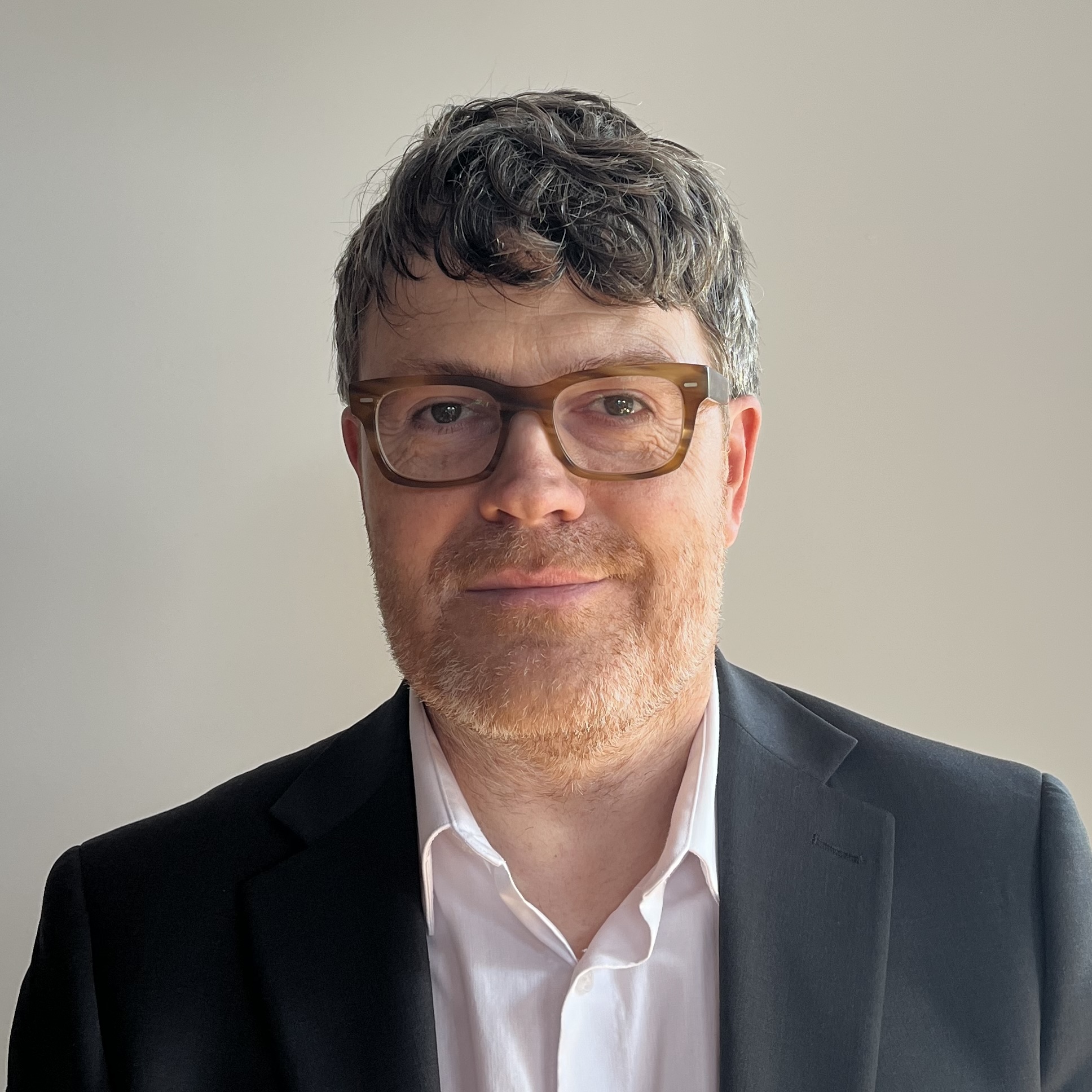
Brent Ridley was recently a technology-to-market advisor at ARPA-E, where he focused on the data center cooling portfolio and worked with project teams on strategies for technology transition and adoption.
Prior to ARPA-E, he worked at Otherlab, where he led an interdisciplinary research team and spun out Skyscrape, a company developing temperature-responsive clothing and fabrics that launched its first product with Ralph Lauren at the 2022 Winter Games Opening Ceremonies.
Earlier, he co-founded Kovio, a printed electronics startup that grew out of his graduate work at the MIT Media Lab on inorganic semiconductor inks.
He is currently a senior advisor to the MIT Climate Project, focusing on technology impact and translation.
Veronica L. Robertson
Energy Products Technology Portfolio Manager, ExxonMobil
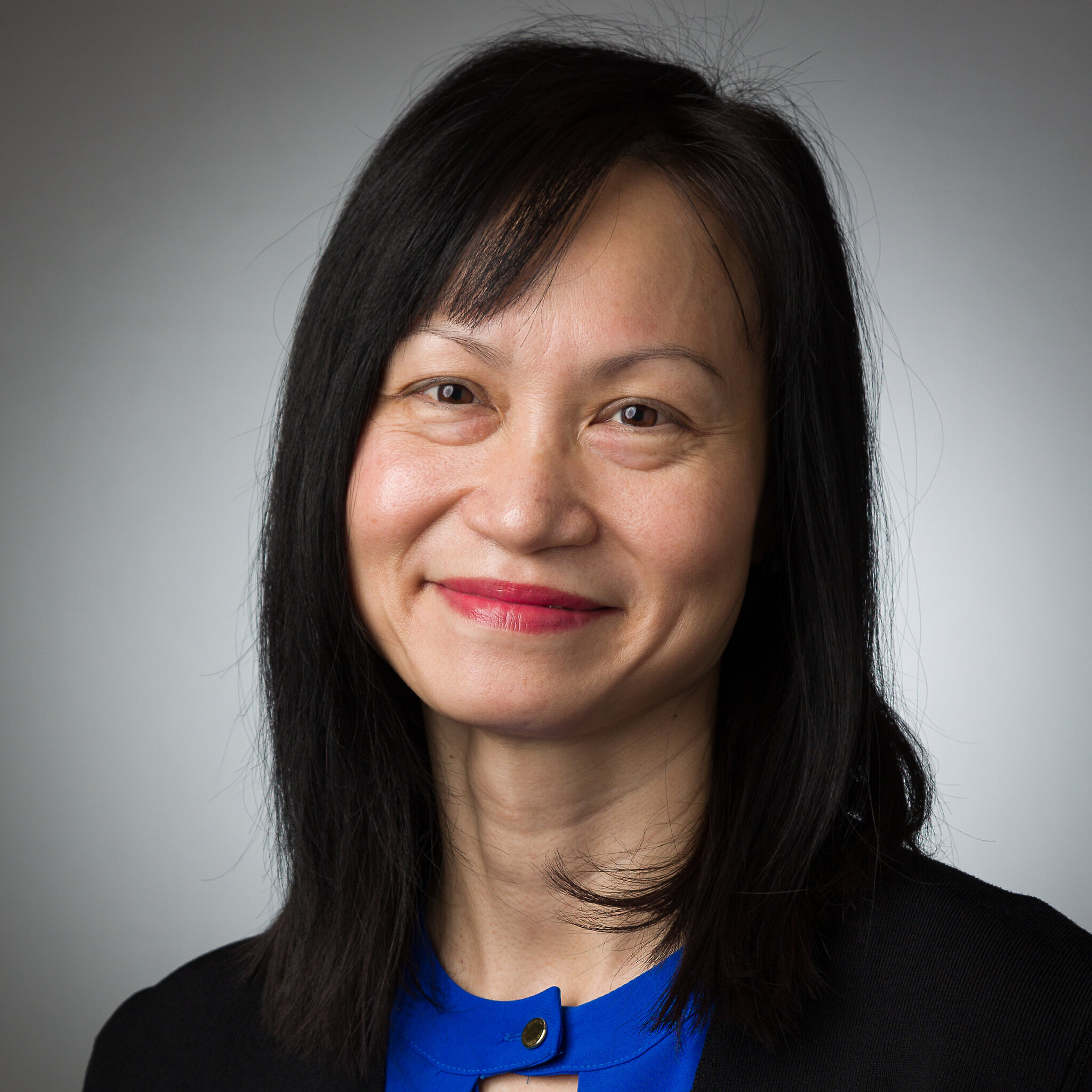
Veronica L. Robertson is the manager for the Energy Products Technology Portfolio in ExxonMobil Technology and Engineering. In this position, she is accountable for all technology programs for the ExxonMobil Product Solutions fuels and energy business. Robertson earned her bachelor’s and master’s degrees in chemical engineering practice from the University of Illlinois at Urbana-Champaign, and the National University of Singapore. She joined ExxonMobil at the Joliet Refinery in Illinois, USA and has since worked in a variety of manufacturing, technology and engineering and business positions. She has lived in Texas, Virginia, Illinois, Singapore, and Malaysia, and has worked in ExxonMobil’s heritage fuels and lubricants companies in addition to the chemical company. Robertson has been married to her husband Ashby for 23 years, and they have one son Charles. In her free time, Robertson goes on mountaineering expeditions, and climbs rock and ice.
Jonathan Rose
Transmission Planning Engineer, Electrical Reliability Council of Texas
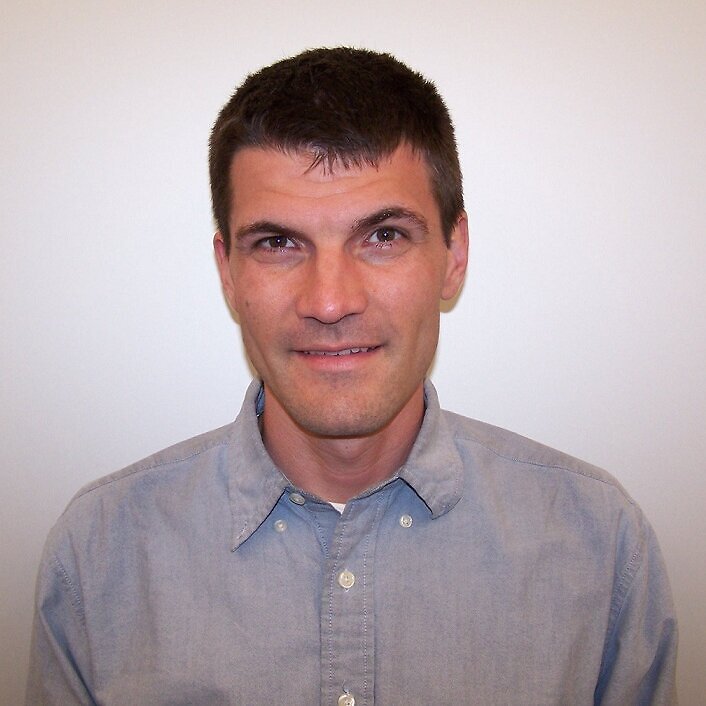
Jonathan Rose is a transmission planning engineer at the Electrical Reliability Council of Texas (ERCOT), the independent grid operator for Texas. He has worked in a number of roles, from resource integration to evaluating model performance and analyzing oscillation events. His interests include control systems, dynamic stability, subysynchronous resonance, and power electronic converters including those used in large loads.
Carolyn Ruppel
Deputy Director for Science and Technology, MIT Energy Initiative
Carolyn Ruppel is MITEI’s deputy director of science and technology. Her role involves engagement across the research, education, and outreach portfolios of MITEI, the hub of energy research at MIT.
Ruppel spent nearly 19 years at the U.S. Geological Survey (USGS), where she was a senior rank research geophysicist and led the Gas Hydrates Project. Starting in 2022, she also served as acting senior science advisor to the USGS Chief Scientist. Prior to joining the USGS, Ruppel was a geophysics professor at Georgia Tech from 12 years and served nearly three years as a National Science Foundation program manager. Ruppel has led many research cruises, including in the Arctic Ocean, and served on numerous advisory and editorial panels. Her published research focuses on seafloor methane emissions, gas hydrate resources, subsea permafrost, and hydrate-climate change interactions.
Ruppel received all her degrees from MIT (PhD 1992; SB and SM 1986), participated in MITEI’s Future of Natural Gas study in 2011, and held a courtesy appointment at MIT’s Earth Resources Laboratory for several years. She is a fellow of the Geological Society of America and a recipient of the Department of Interior’s Distinguished Service Award.
Nestor Sepulveda
Commercial Lead for Advanced Energy Investments and Partnerships, Google
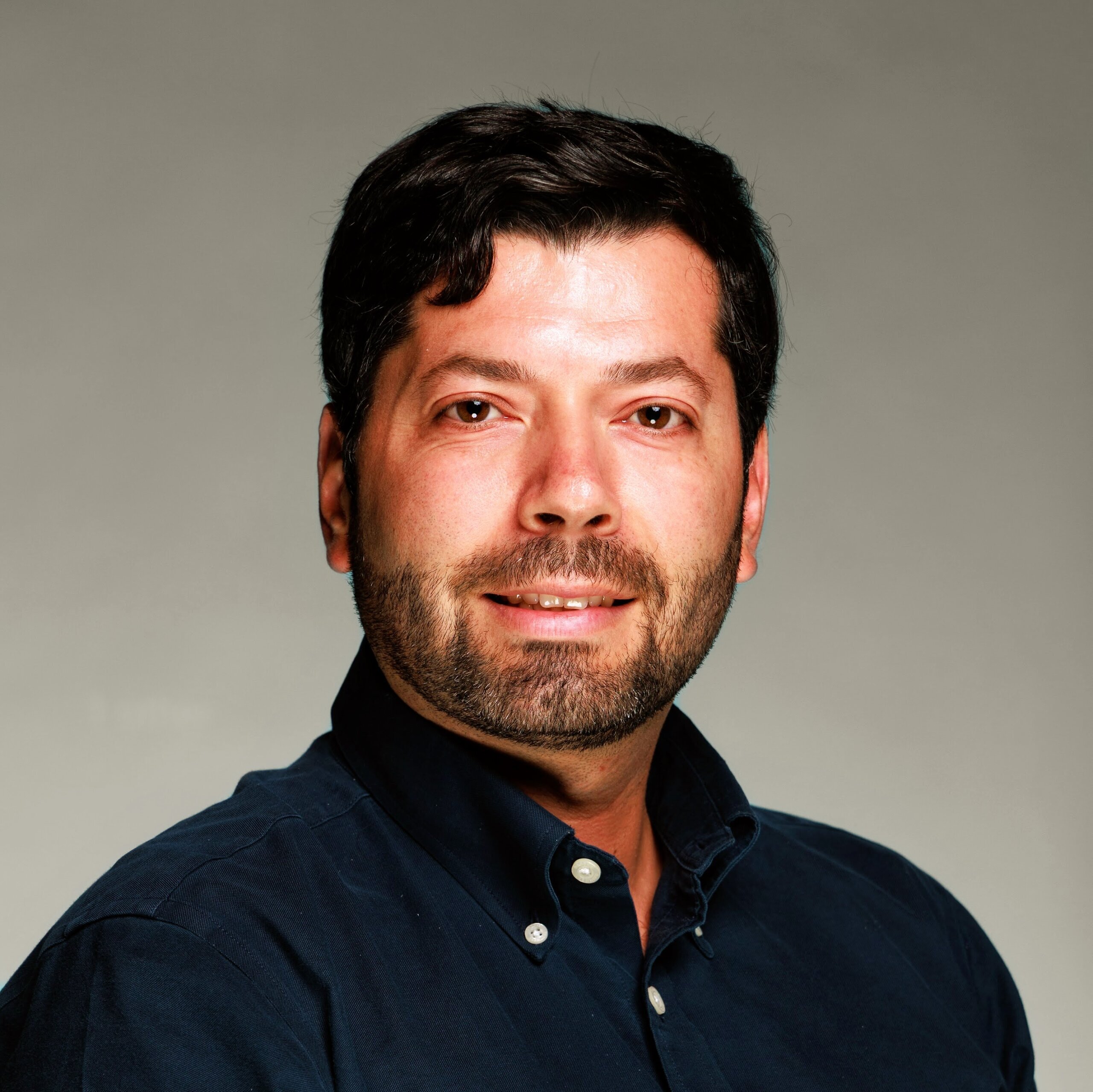
Nestor Sepulveda is the commercial lead for advanced energy investments and partnerships at Google, dedicated to accelerating the transition to a carbon-free energy future. Sepulveda specializes in developing and executing commercial strategies that bridge innovative technology with large-scale investment and deployment. His experience is built on a unique foundation of strategy, technology, and operations. Before joining Google, he advised leading energy companies, utilities, and investors on energy transition strategy and sustainable investing at McKinsey & Company. Sepulveda’s approach is grounded in deep technical knowledge from his PhD at MIT, where he developed novel methodologies to guide cleantech investments, with research featured in The New York Times and The Economist. This background is complemented by operational and project management expertise honed as a program manager in the Chilean Navy and through policy analysis for the OECD.
Alvin Shaffer
Head of Partnerships, Ecosystems and Intelligence, Equinor

Alvin Shaffer is the head of Partnerships, Ecosystems, and Intelligence at Equinor. He introduced the venture clienting model to Equinor with the creation of Equinor Startup Hub and is a driving force behind initiatives that connect startups, academic institutions, and research centers to solve complex energy challenges. Shaffer also oversees the company’s Norwegian academia program and technology intelligence, facilitating fundamental energy transition research and ensuring a strong flow of external technology insights into Equinor.
Since joining Equinor (formerly Statoil) in 2008, Shaffer has built a diverse career spanning project engineering, finance and control, and asset management across onshore and offshore operations. He has held several leadership roles, including vice president of business efficiency and head of Industry 4.0 for Renewables, where he championed digital transformation and efficiency improvements.
Earlier in his career, Shaffer worked as a field engineer in control and automation with ExxonMobil Pipeline Company, gaining hands-on technical experience that shaped his approach to innovation and operational excellence.
Shaffer holds a Bachelor of Science in electrical engineering from Louisiana Tech University.
Devin Shaw
Commercial Director of Decarbonization Technologies, Shell
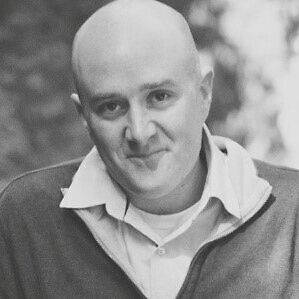
Devin Shaw’s professional experience inside and outside of Shell is diversified and ranges from technical service, customer service, agency/distribution program management and various roles in sales and sales management. He has worked in business and project development for close to 25 years, including 18 at Shell.
In his current role as a commercial director of Decarbonization Technologies, he and his team are tasked to seek opportunities where Shell Decarbonization technologies can be further deployed in commercial settings around the world to help enable the Energy Transition and support the transformation of the global energy system into a lower carbon and more sustainable reality.
Shaw is married and has two children and is based in Montreal, Quebec, Canada.
Giacomo Silvestri
Head of TECH Open Innovation & Technology & Intellectual Property Valorization, Eni SpA; Chairman, Eniverse Ventures
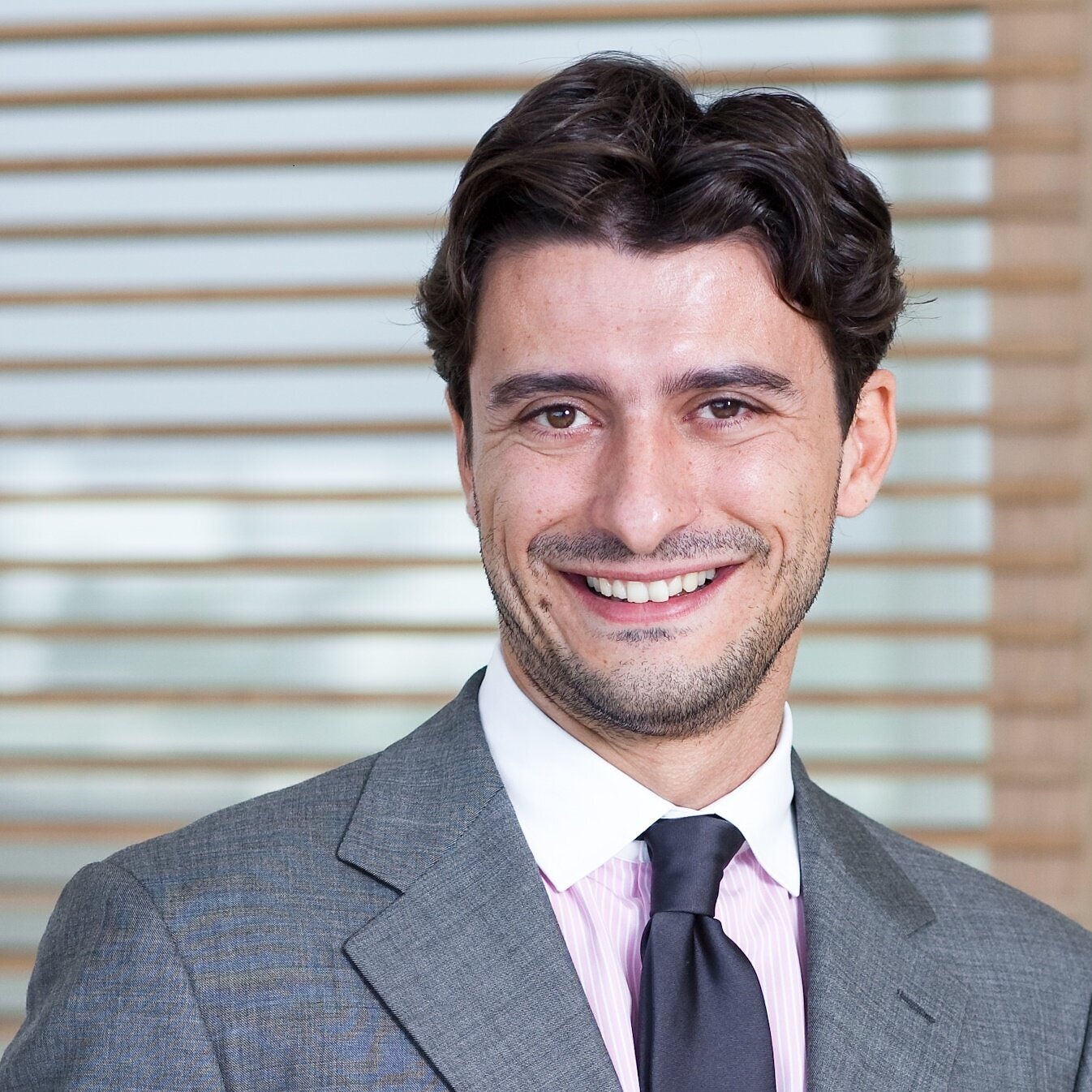
Giacomo Silvestri serves as chairman of Eniverse Ventures, the venture builder vehicle of Eni. Beside this role, he is responsible in Eni to build innovation ecosystems to shape, drive, and accelerate company innovation and strategic transformation. Within Eni, he was former Group Head of Digital where he led digital agenda and Eni Digital Factory where sits data scientists, scrum, and experience design team.
Prior to joining Eni, Silvestri was global head of Organization, Strategic Workforce Planning & Change Management in Generali Insurance Group, and formerly partner at the Boston Consulting Group.
Brian Storey
Vice President of Energy & Materials, Toyota Research Institute
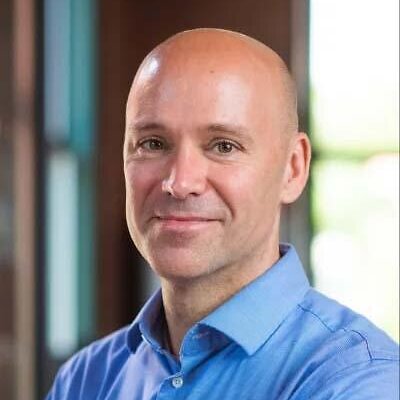
Brian Storey is the vice president of Energy & Materials at Toyota Research Institute (TRI). The mission of the Energy & Materials division is to develop tools to accelerate Toyota’s path to emissions-free mobility and carbon neutrality. The Energy & Materials division consists of our internal Energy & Materials research team as well as an extensive collection of funded collaborative research at leading universities. Our researchers focus on discovering carbon-neutral technologies that work amid social, economic, and political forces. Our goal is to translate new ideas, tools, and technologies to accelerate energy materials discovery and battery manufacturing.
Prior to TRI, Storey was a professor of mechanical engineering at Olin College. He joined the faculty at Olin in 2000 and was one of the founding faculty members for this undergraduate, engineering-focused college. Storey received his PhD from the University of California at Berkeley, MS from University of Illinois, and BS from the University of Texas at Austin – all in mechanical engineering.
Yogesh Surendranath
Donner Professor of Science, MIT Departments of Chemistryand Chemical Engineering
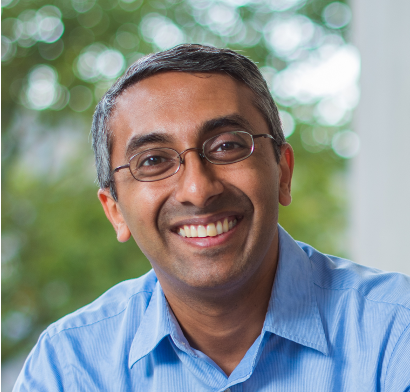
Yogesh (Yogi) Surendranath is the Donner Professor of Science with appointments in the Departments of Chemistry & Chemical Engineering at the Massachusetts Institute of Technology. He holds dual bachelor’s degrees in chemistry and physics from the University of Virginia and a PhD in inorganic chemistry from MIT, obtained under the direction of Professor Daniel Nocera. After receiving his PhD, Surendranath undertook postdoctoral studies as a Miller Research Fellow at UC Berkeley, under the direction of Professor Paul Alivisatos. In 2013, he launched his independent research program at MIT. The Surendranath group aims to address frontier challenges in energy conversion and sustainability by controlling interfacial reactivity at the molecular level.
Trent Weiss
PhD Candidate, MIT Department of Chemical Engineering
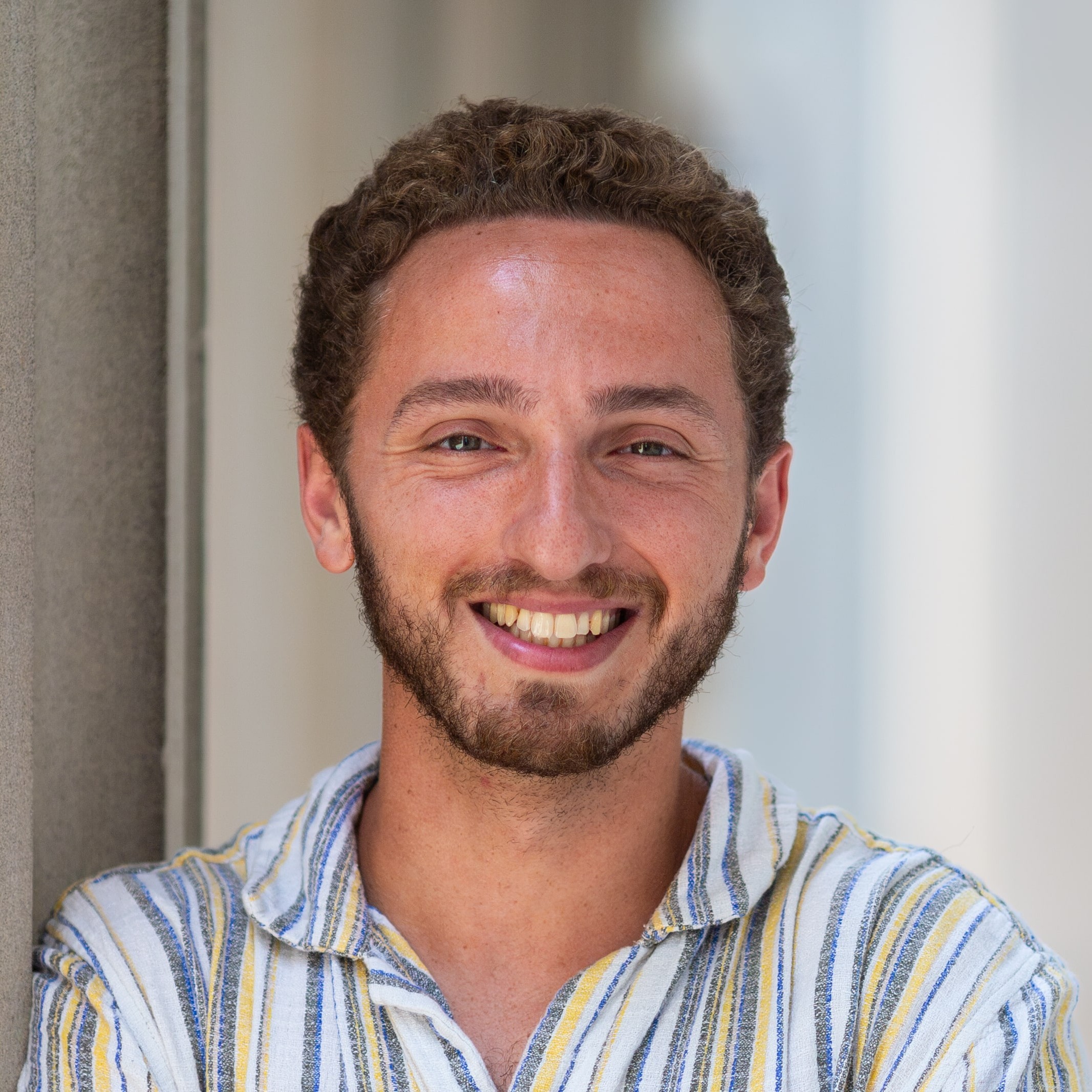
Trent Weiss is a PhD candidate in the Department of Chemical Engineering at MIT, advised by Professor Fikile Brushett. His research centers on electrochemical energy storage, with an emphasis on rethinking lithium-ion battery electrode and cell architectures to meet the demands of high-power, high-energy applications such as electric aviation and heavy-duty electrified transportation. His thesis work focuses on the fabrication of electrode architectures designed to enable the scalable production of mechanically robust, thick electrodes—paving the way for batteries with enhanced performance.
Weiss earned his MS in chemical engineering practice (MSCEP) from MIT in 2023 and his BS in chemical and biomolecular engineering with a minor in economics from Georgia Tech in 2019. Prior to graduate school, he worked at ExxonMobil in the Supply Chain Optimization group, where he developed mathematical models to improve the efficiency of integrated logistics systems across the company’s operations.
Wenzhuo Yang
Chief Technology Officer, Amplified Cell Technology

Wenzhuo Yang was recently appointed as chief technology officer of Amplified Cell Technology (ACT), bringing over 15 years of pioneering leadership in battery technology innovation and scalable manufacturing. He specializes in bridging advanced technology with high-impact commercialization, driving breakthroughs, and implementation in energy storage solutions for a sustainable future.
Prior to joining ACT, Yang served as vice president of Product Development at Sion Power with focus on end-to-end creation of next-generation lithium-metal battery systems. Earlier, Yang held pivotal roles at A123 Systems and Aquion Energy, where he advanced cutting-edge lithium-ion and aqueous-based sodium-ion battery platforms. His expertise spans multiple disciplines, including the development of high-power battery packs for global automakers, compliance certifications, and the scaling of pilot processes to large scale production.
Yang holds a Master’s of engineering in manufacturing from the Massachusetts Institute of Technology (MIT) and a BS in industrial engineering from Shanghai Jiao Tong University.